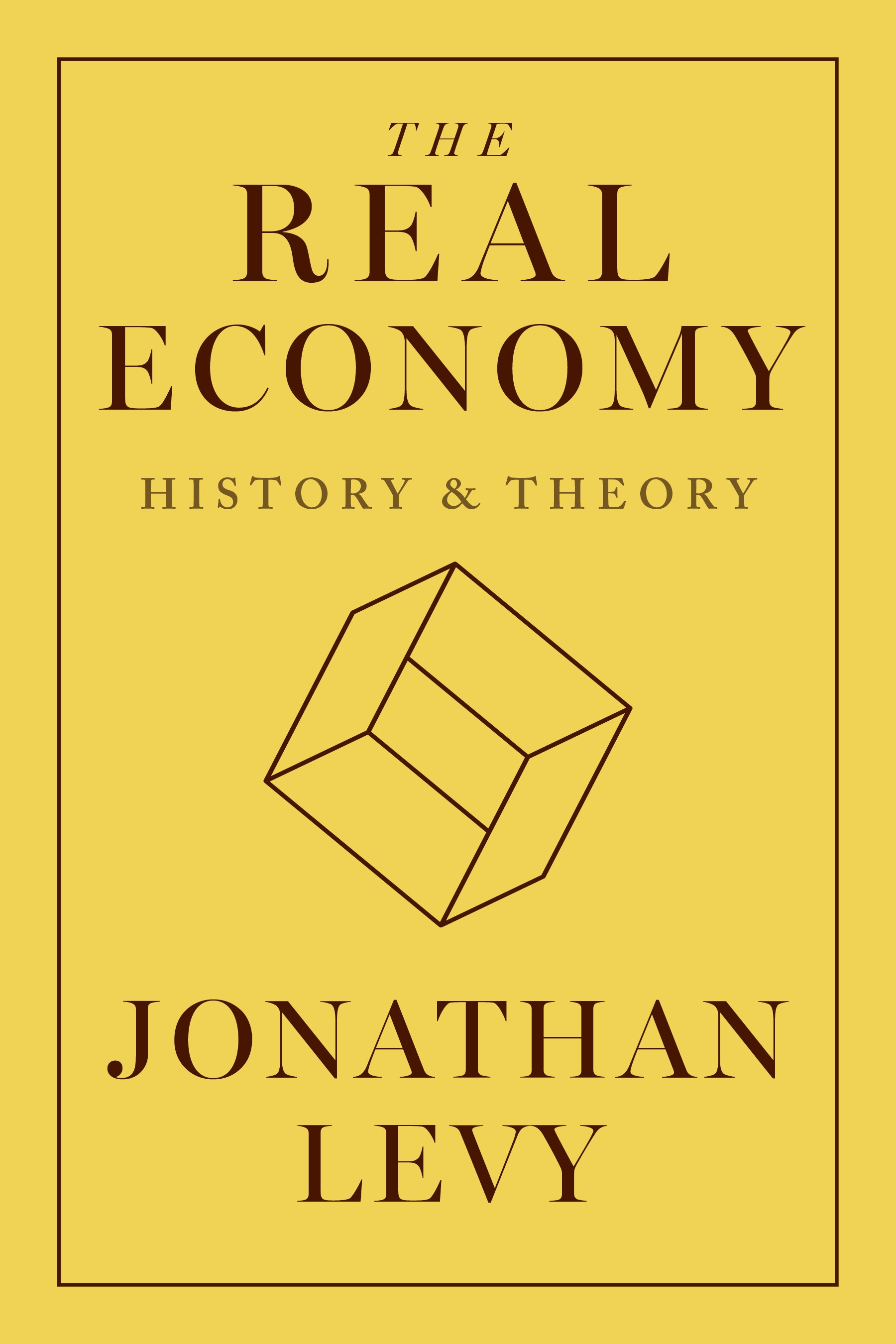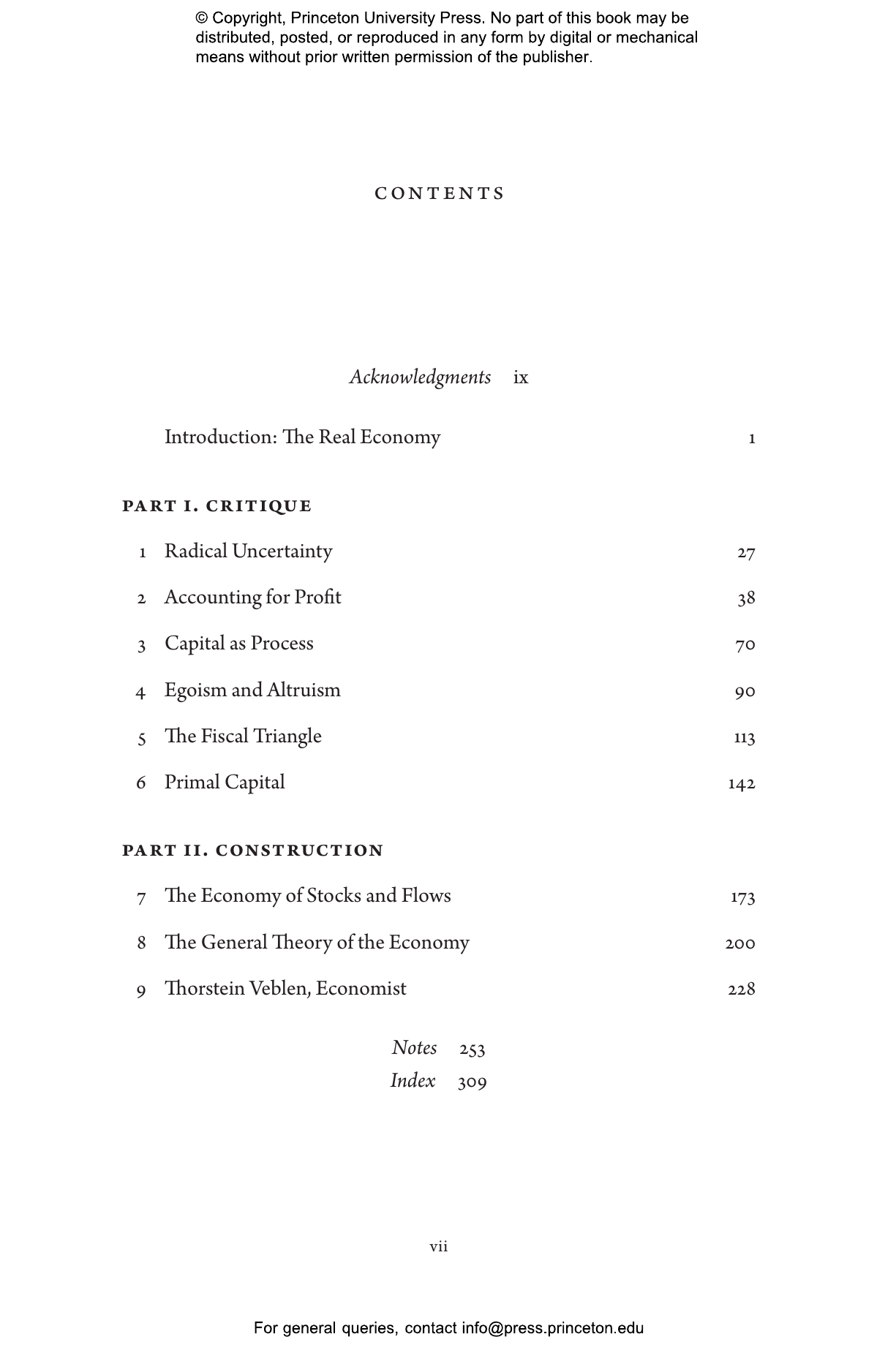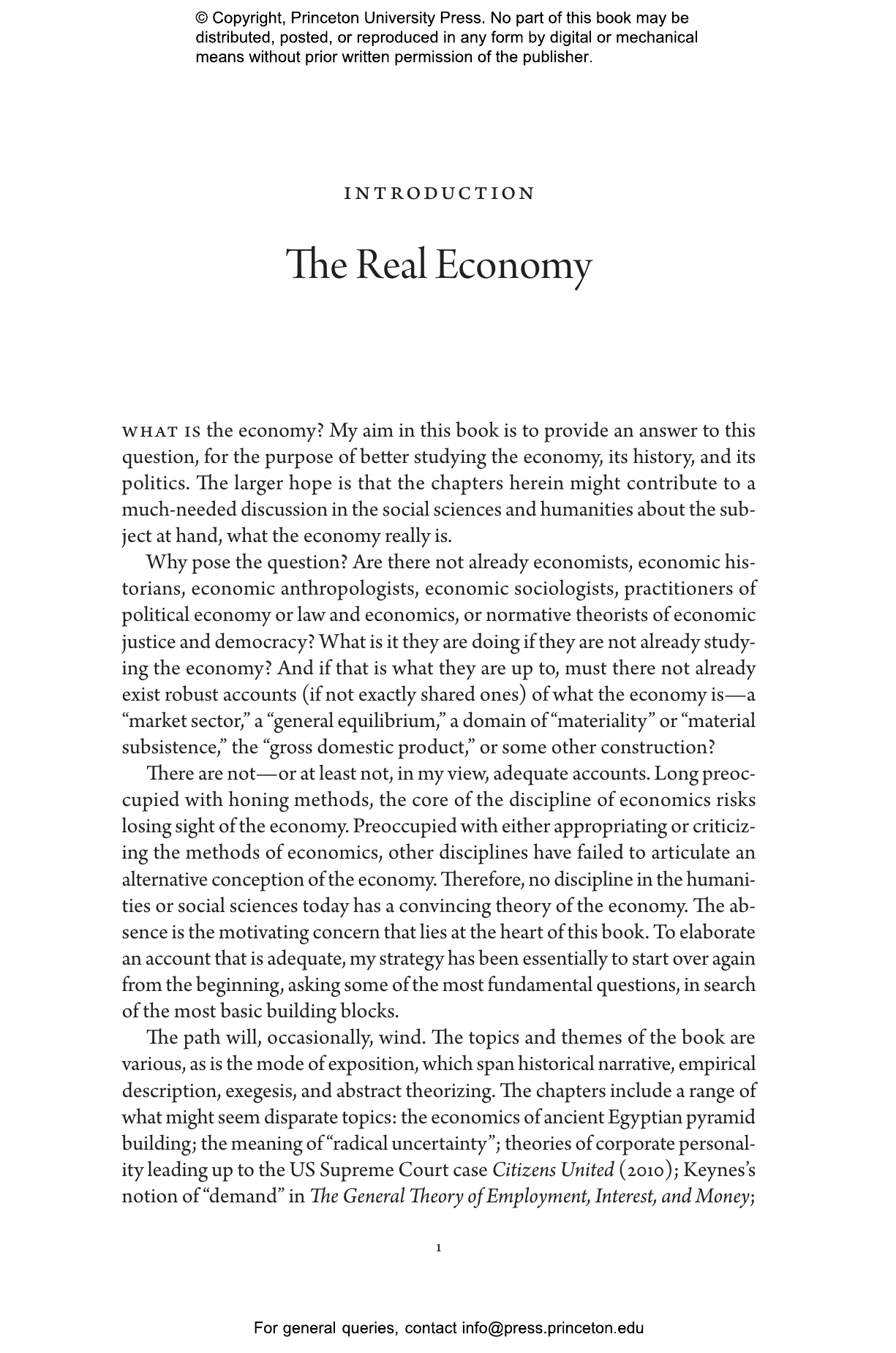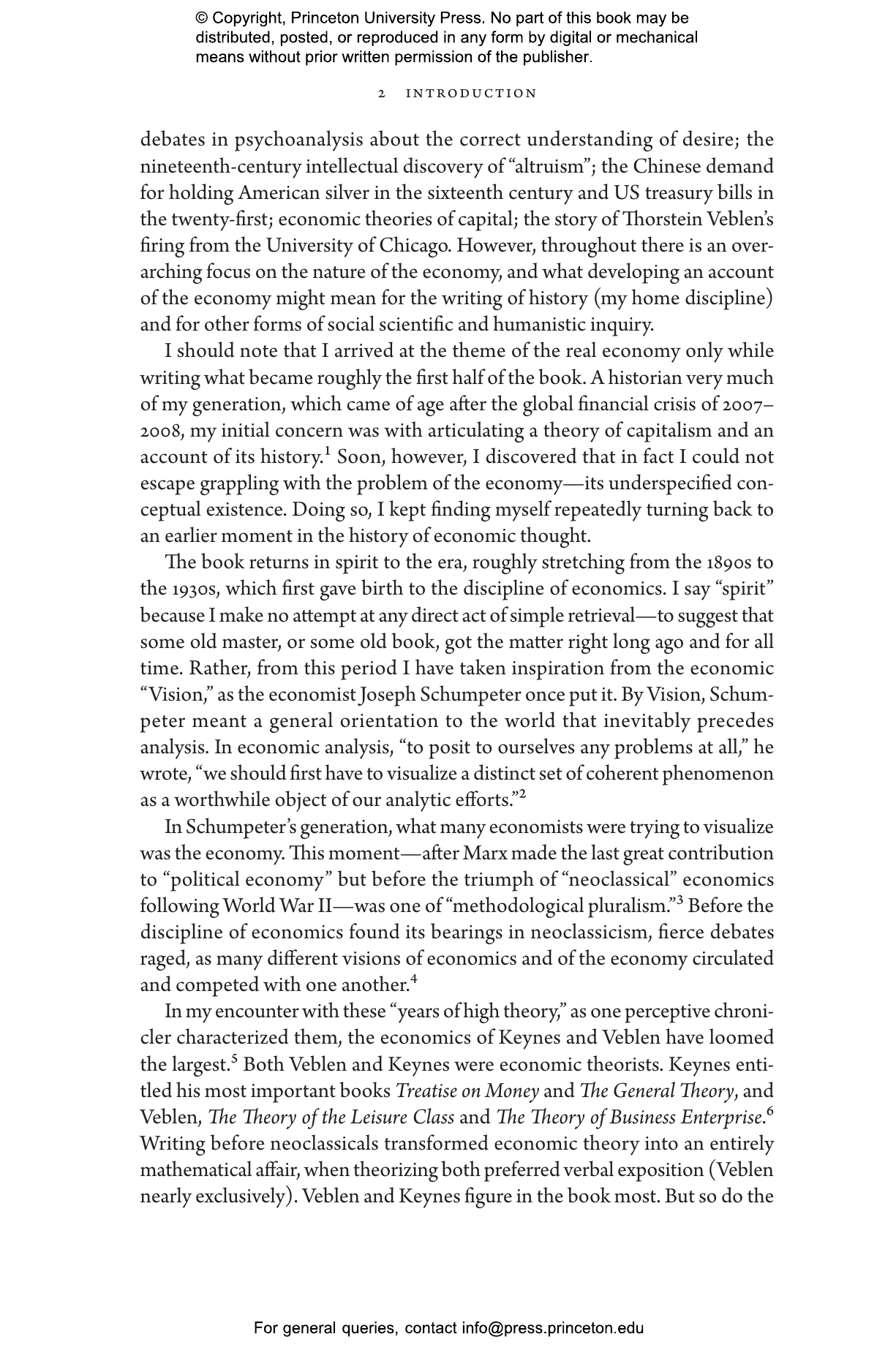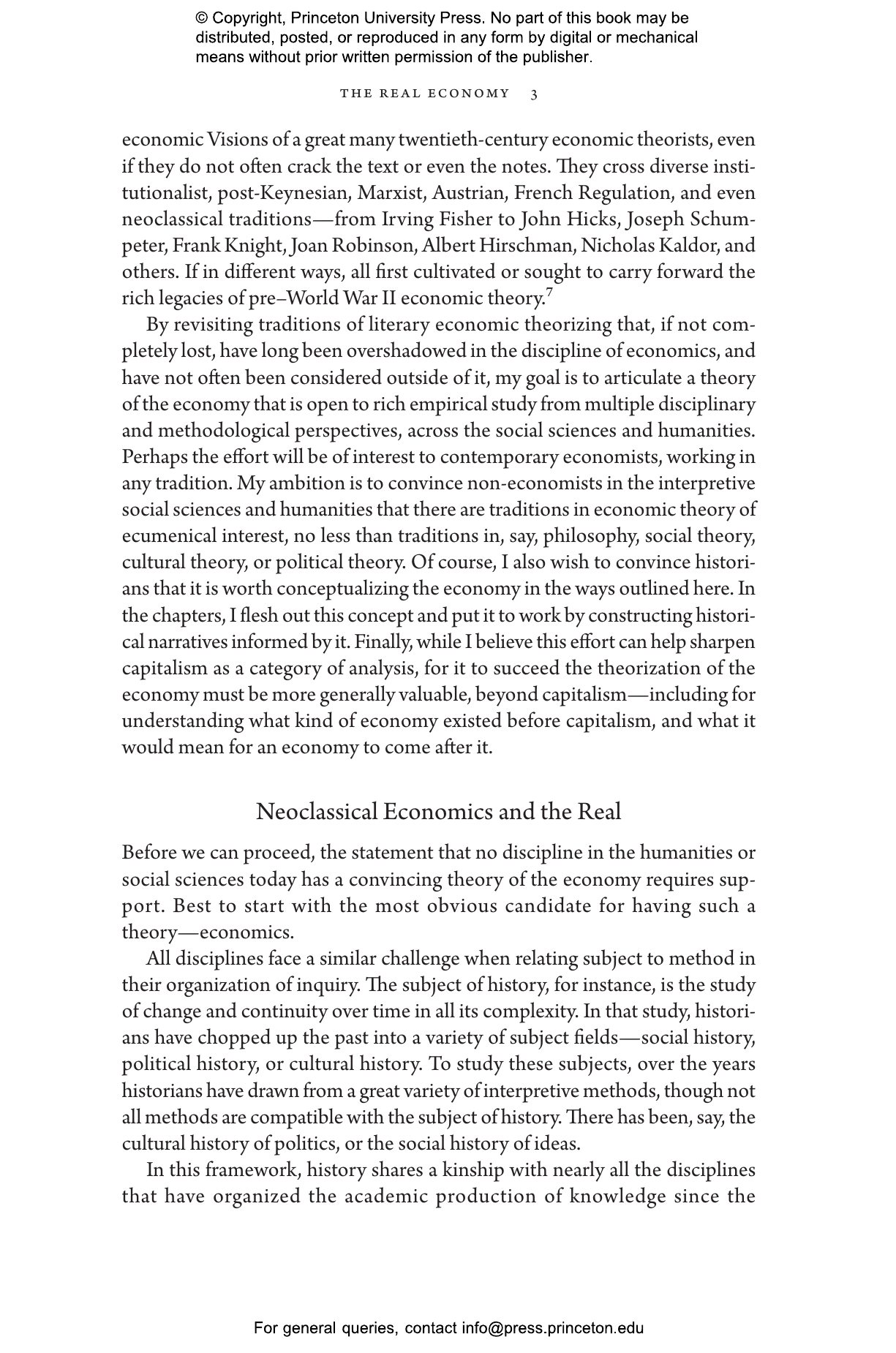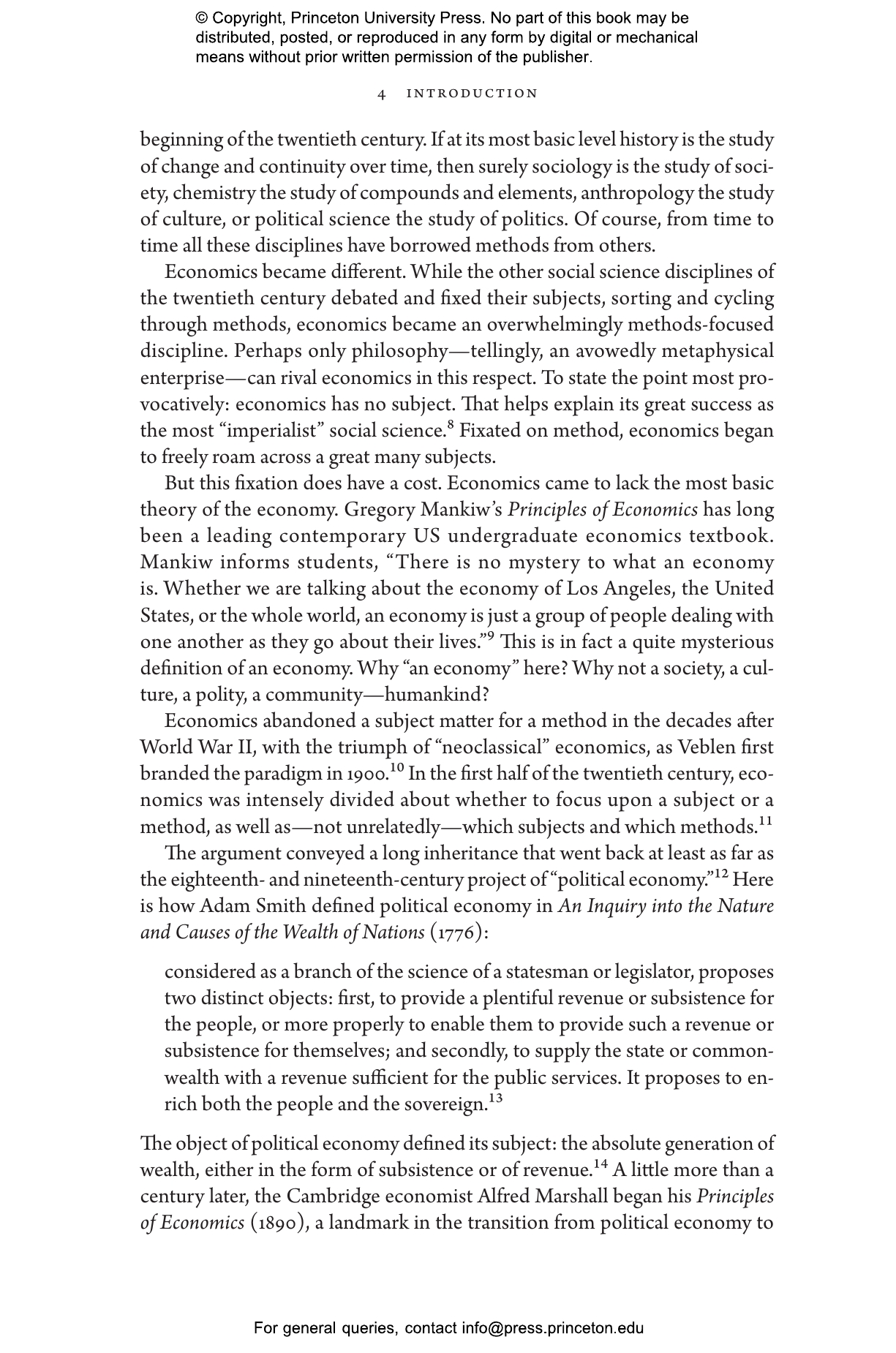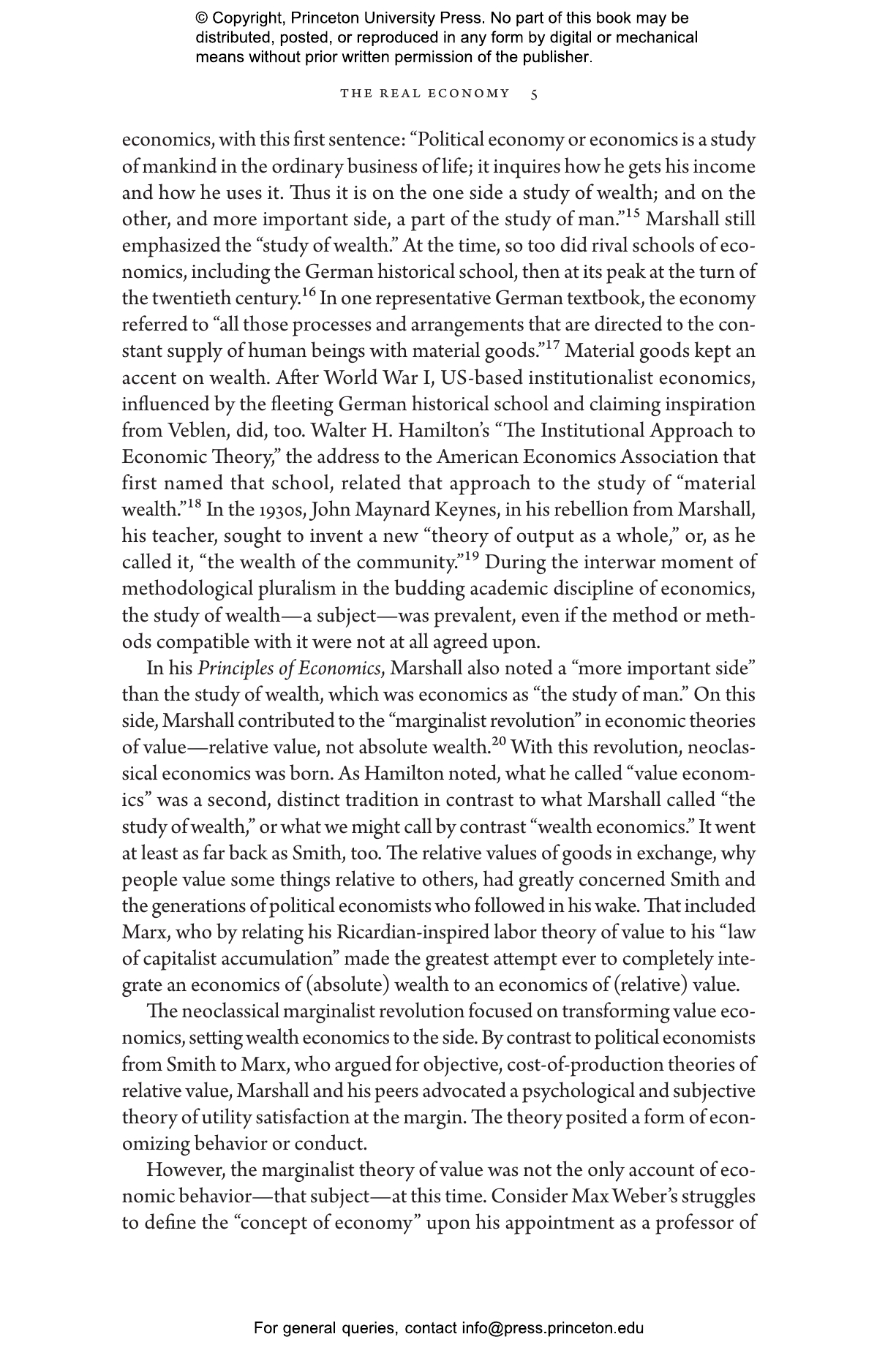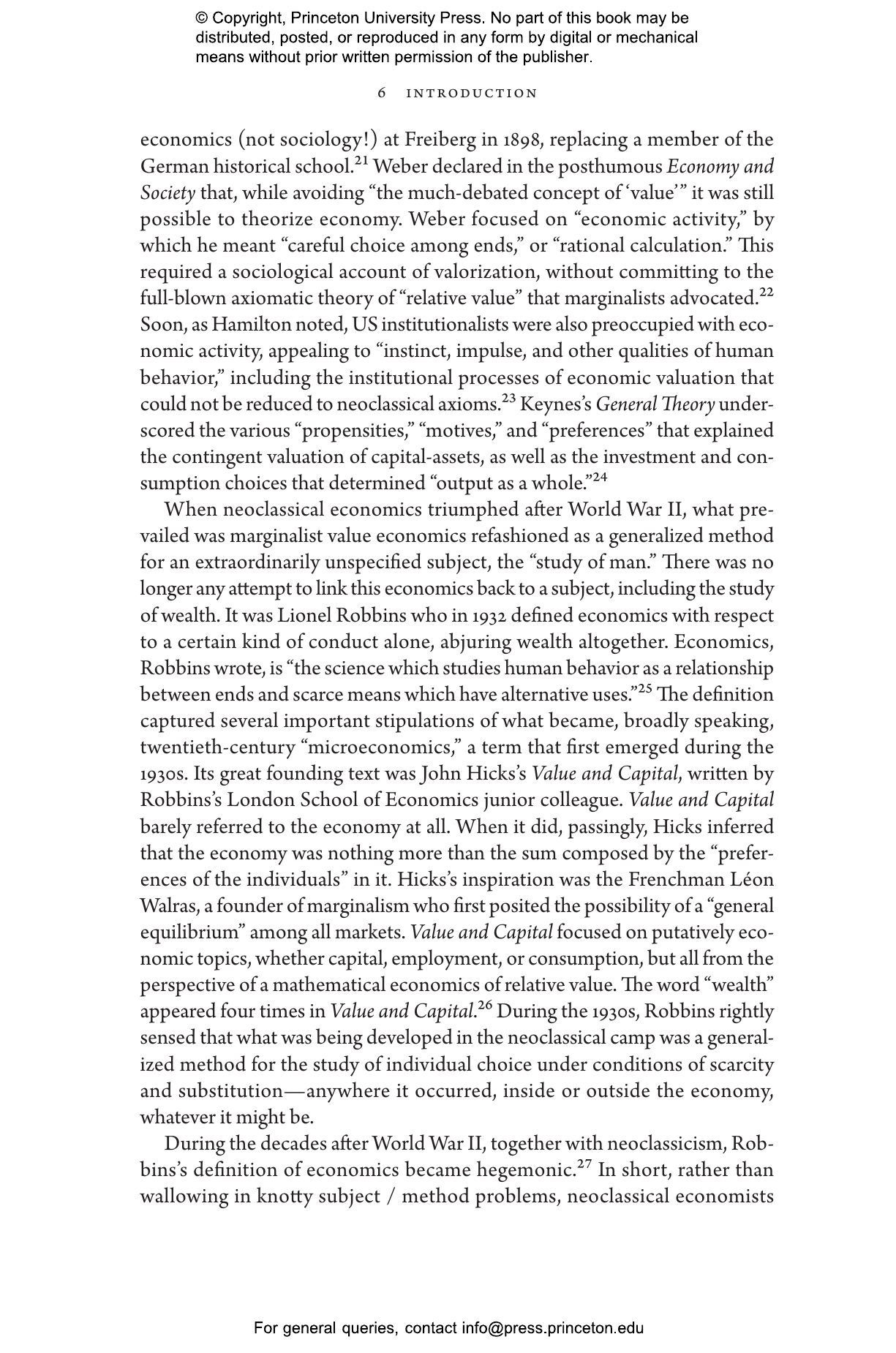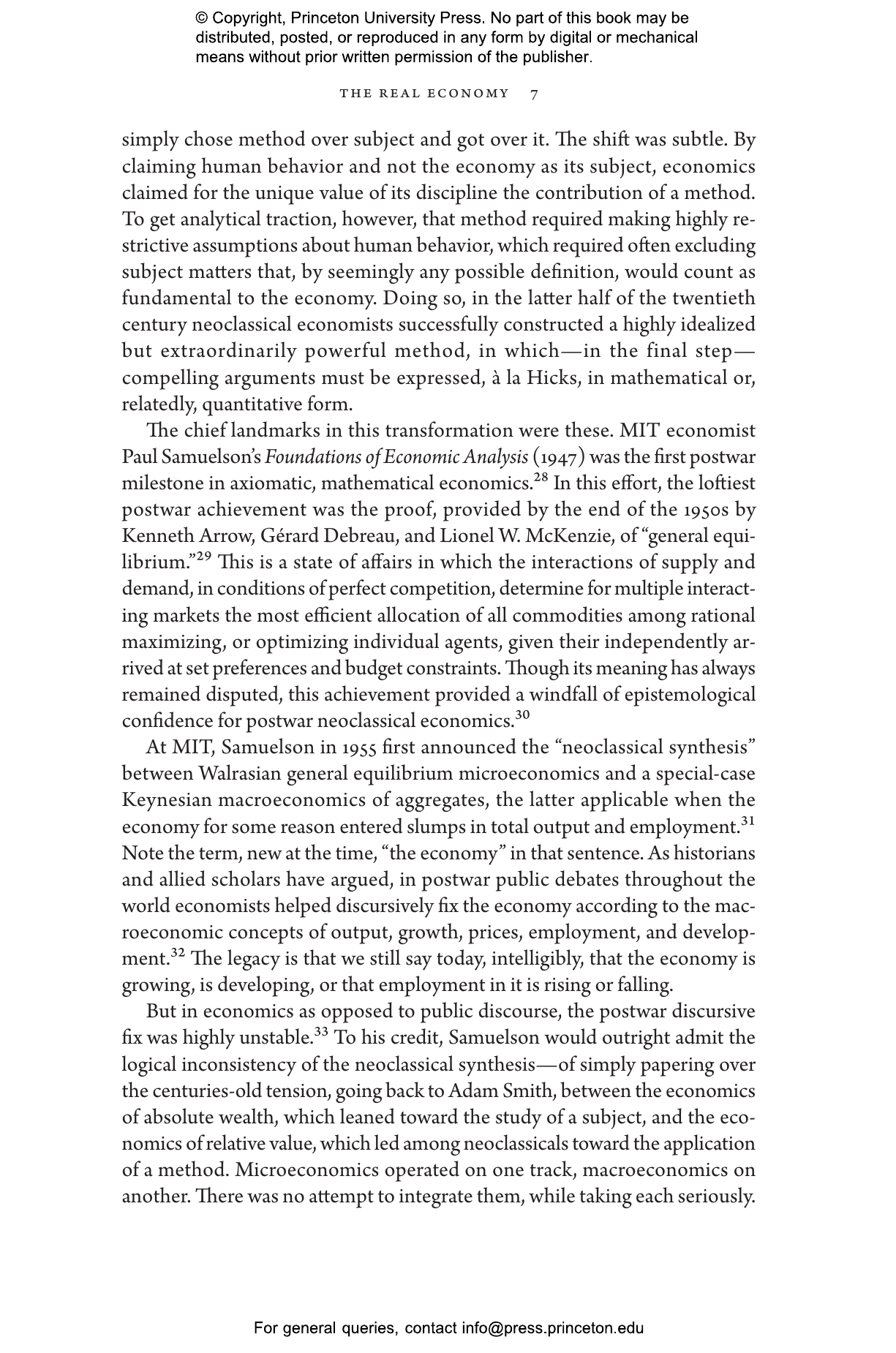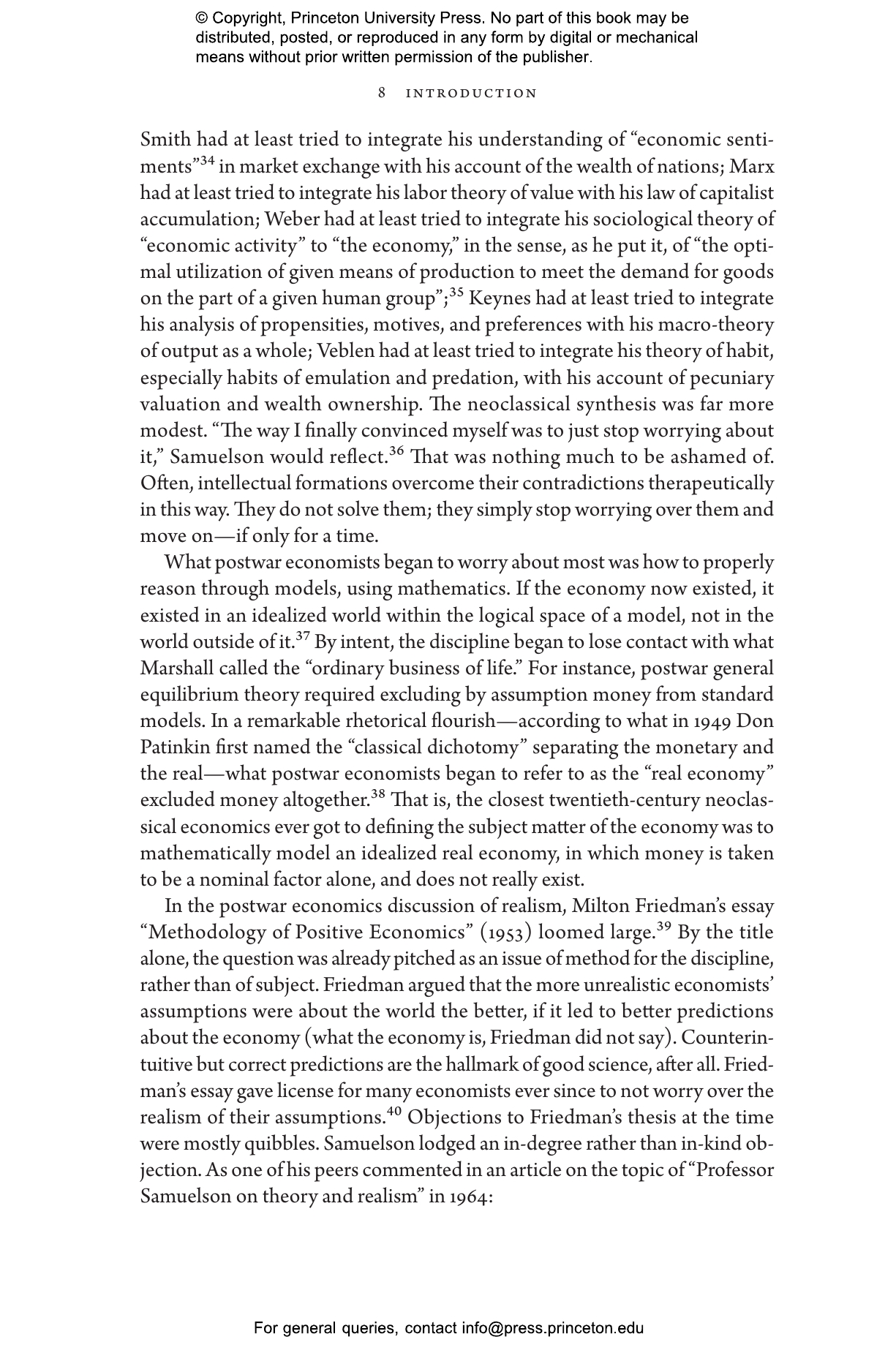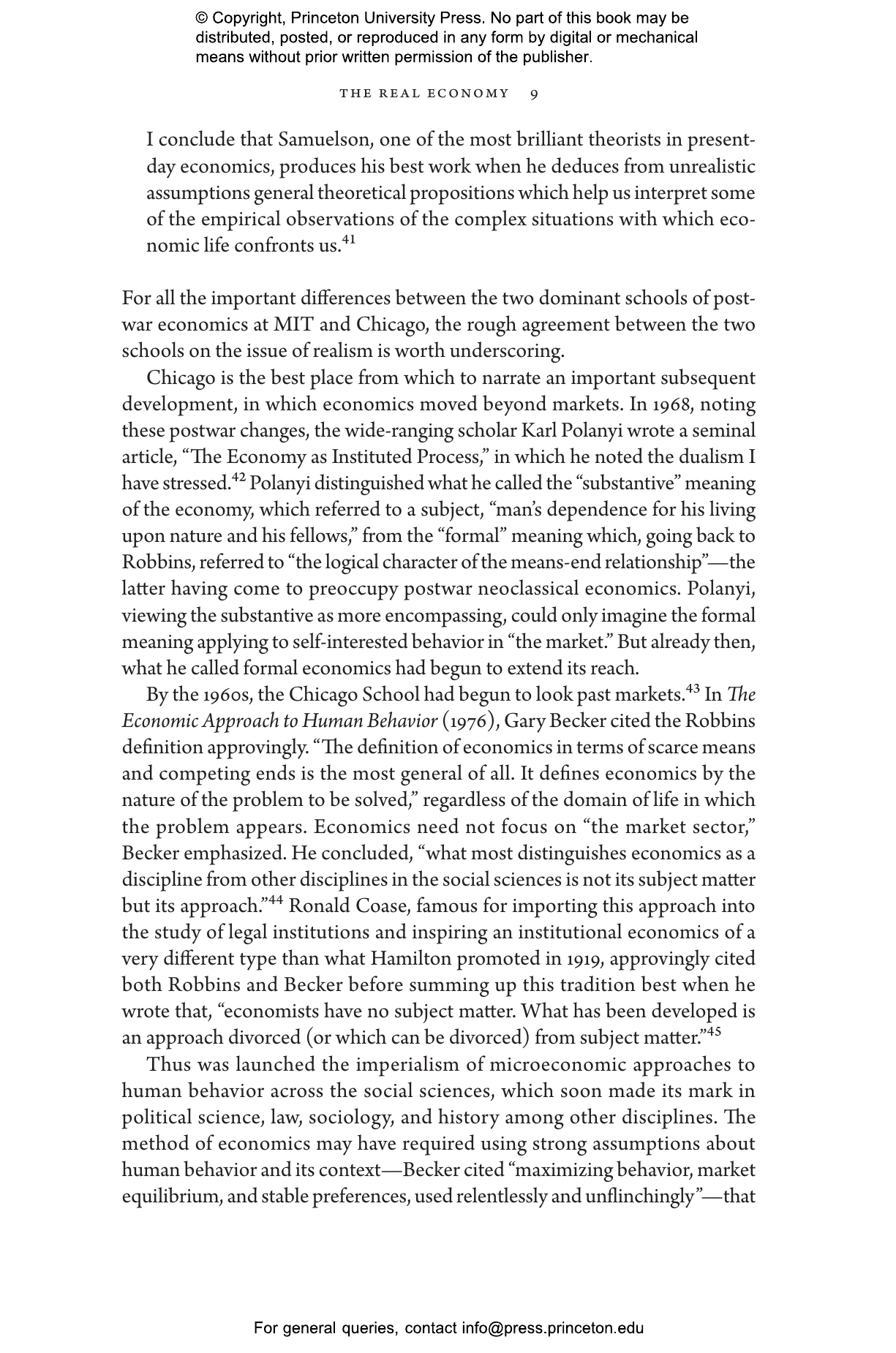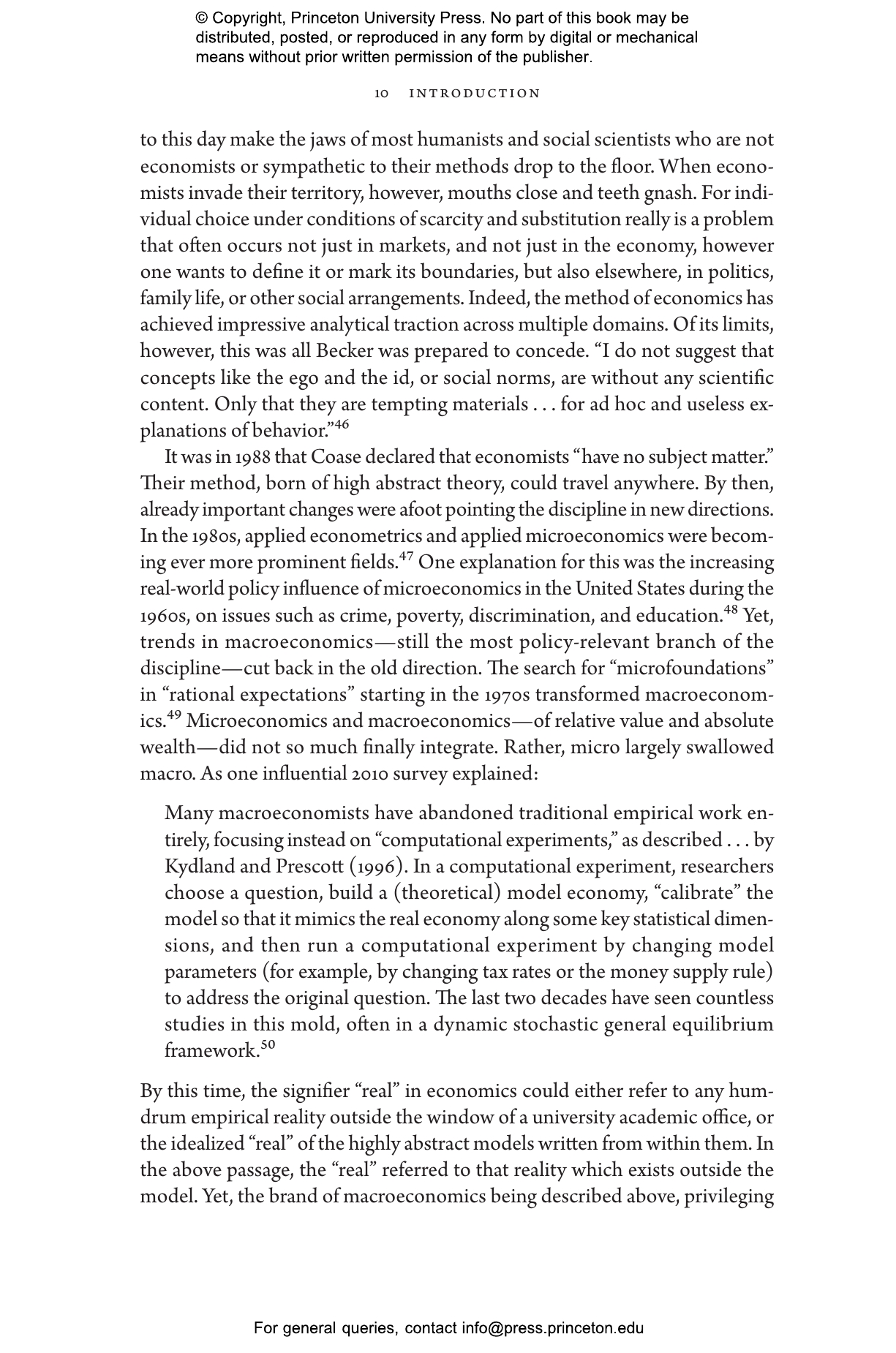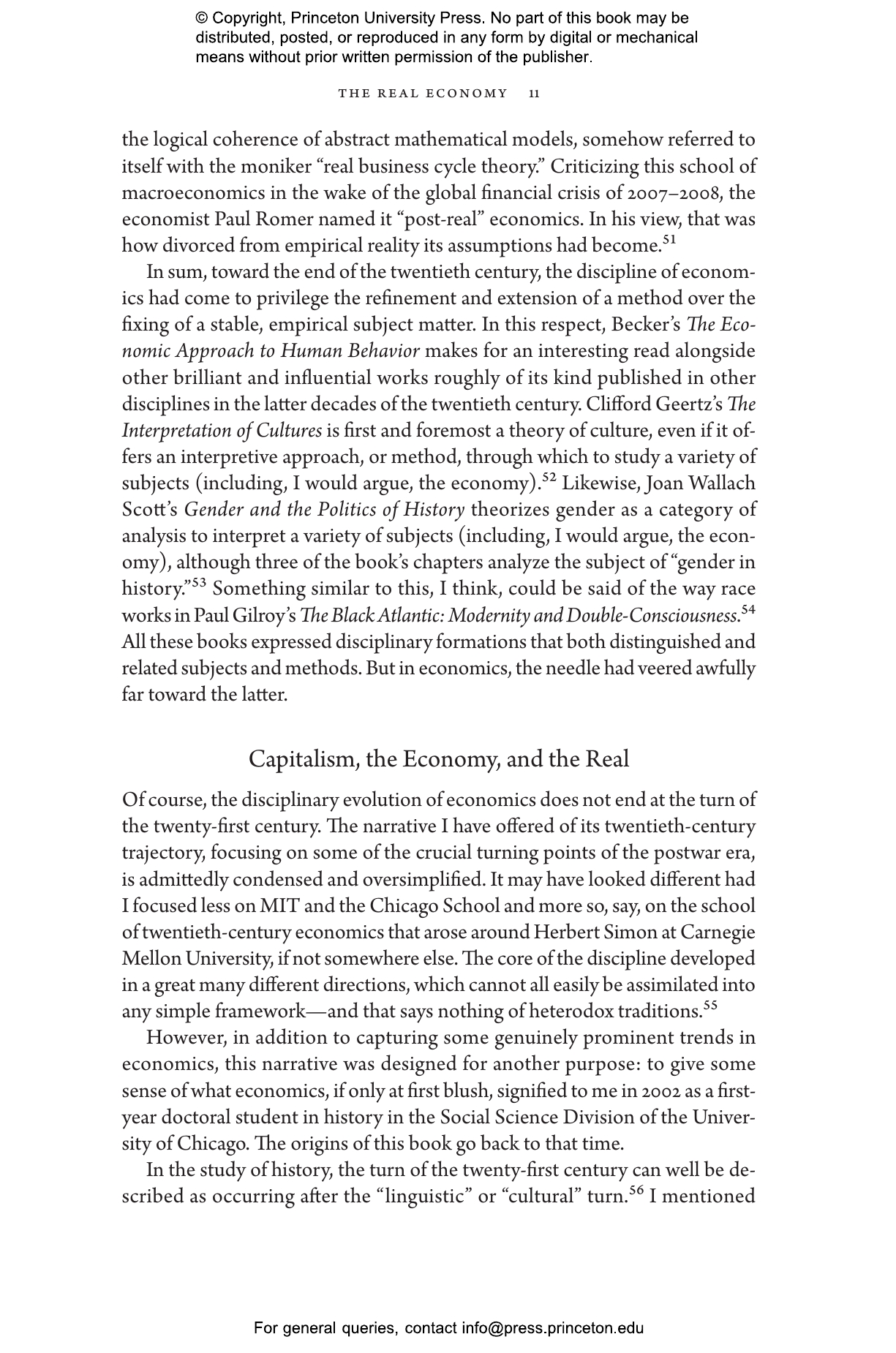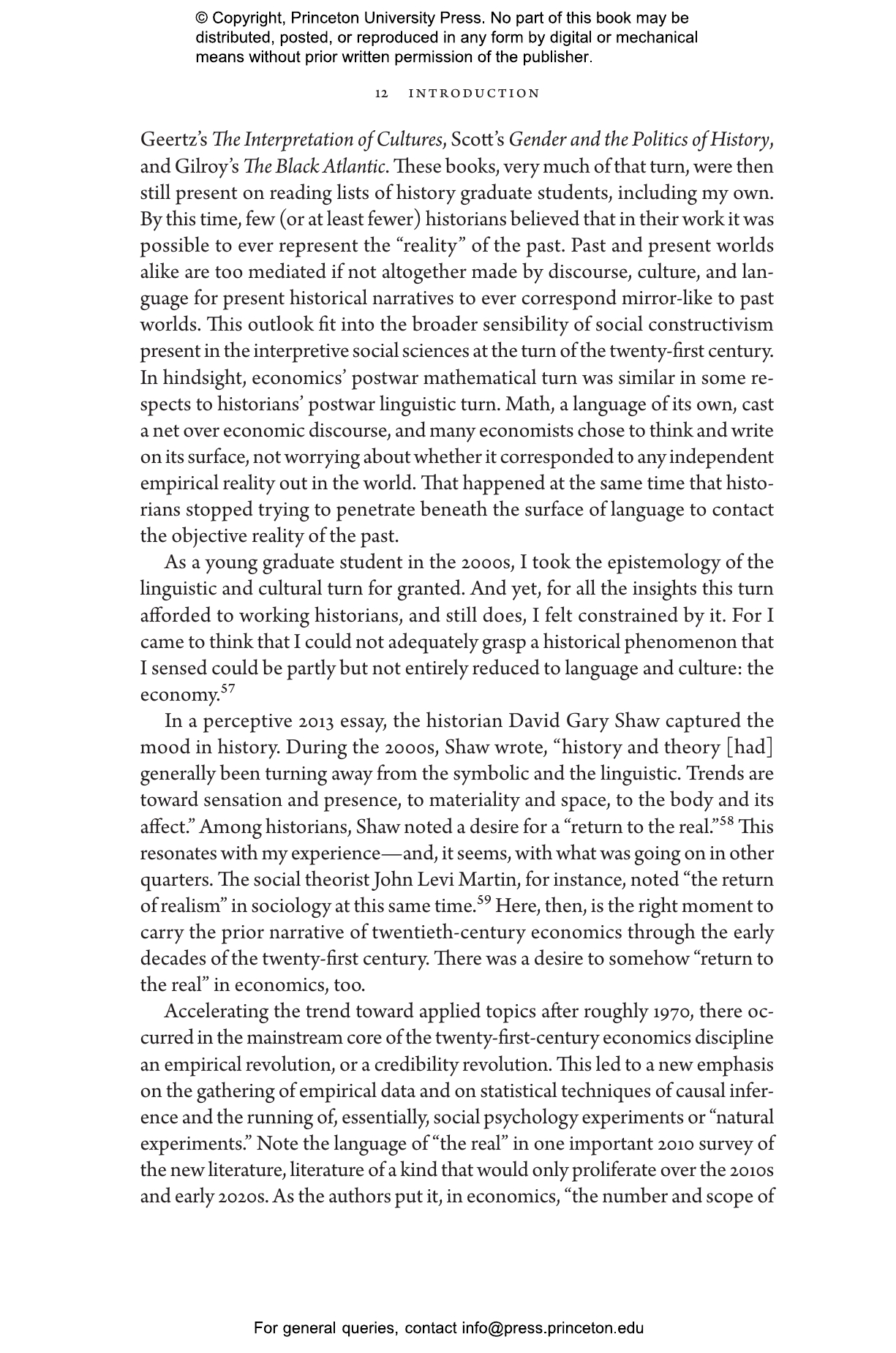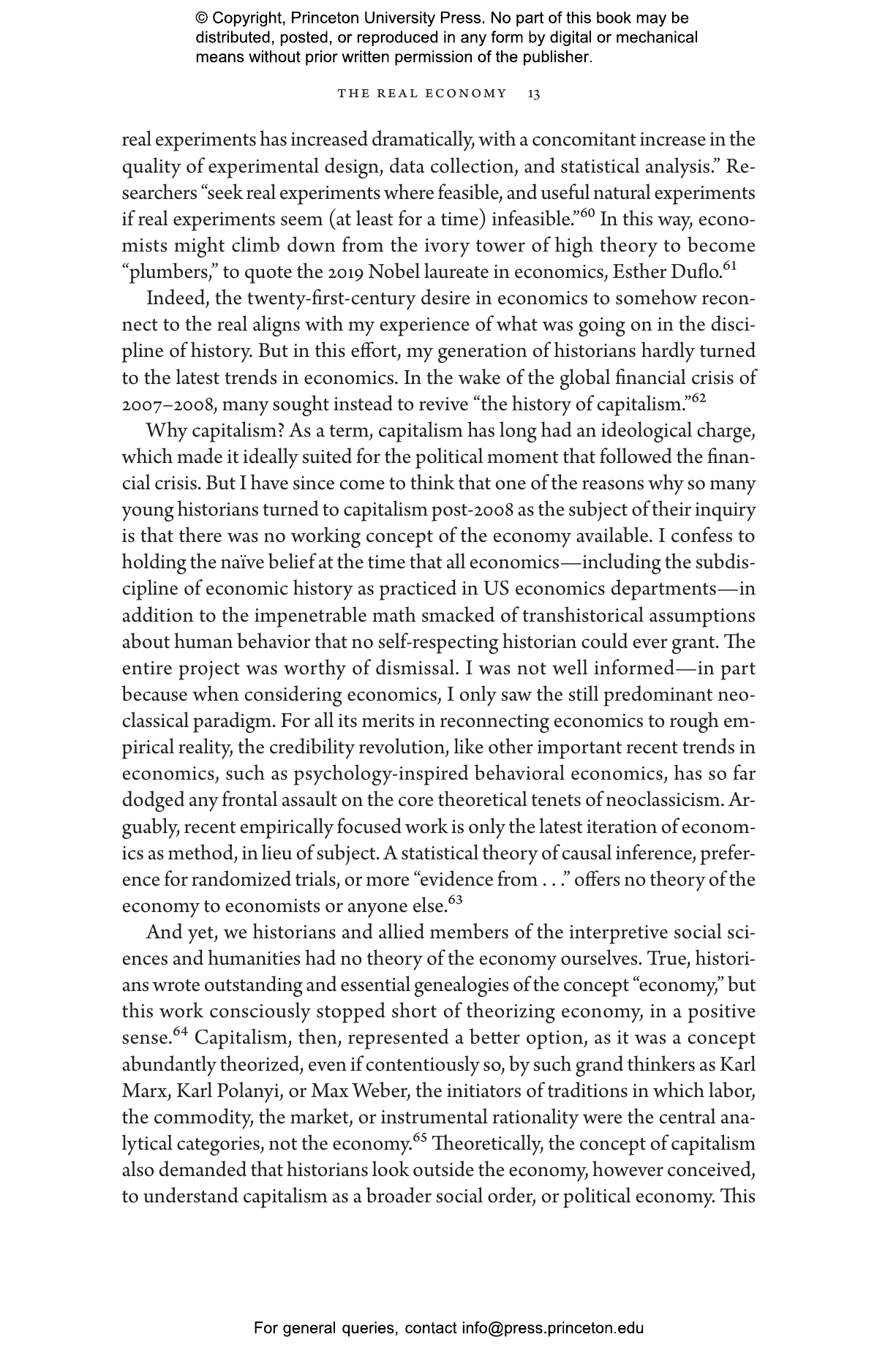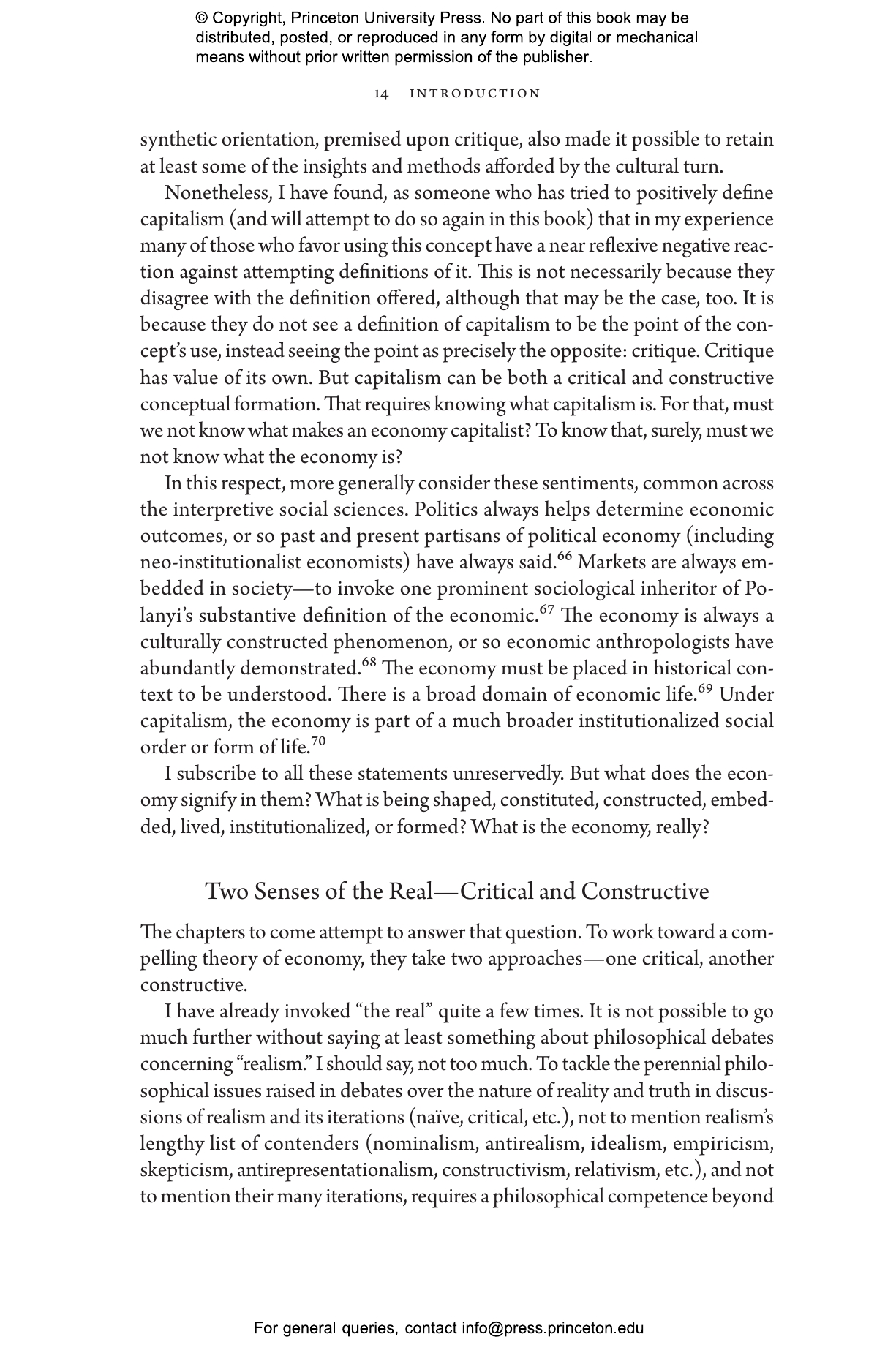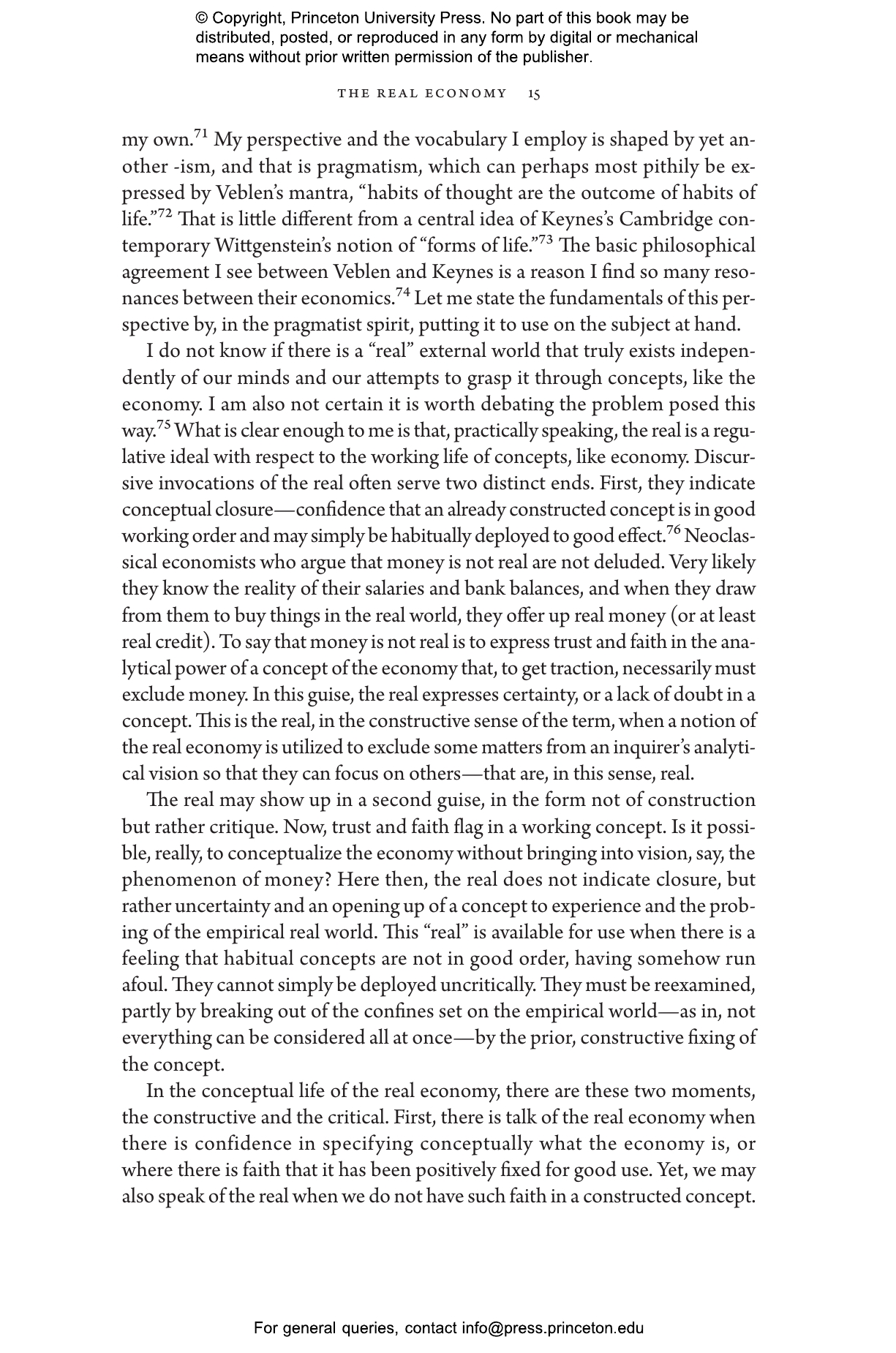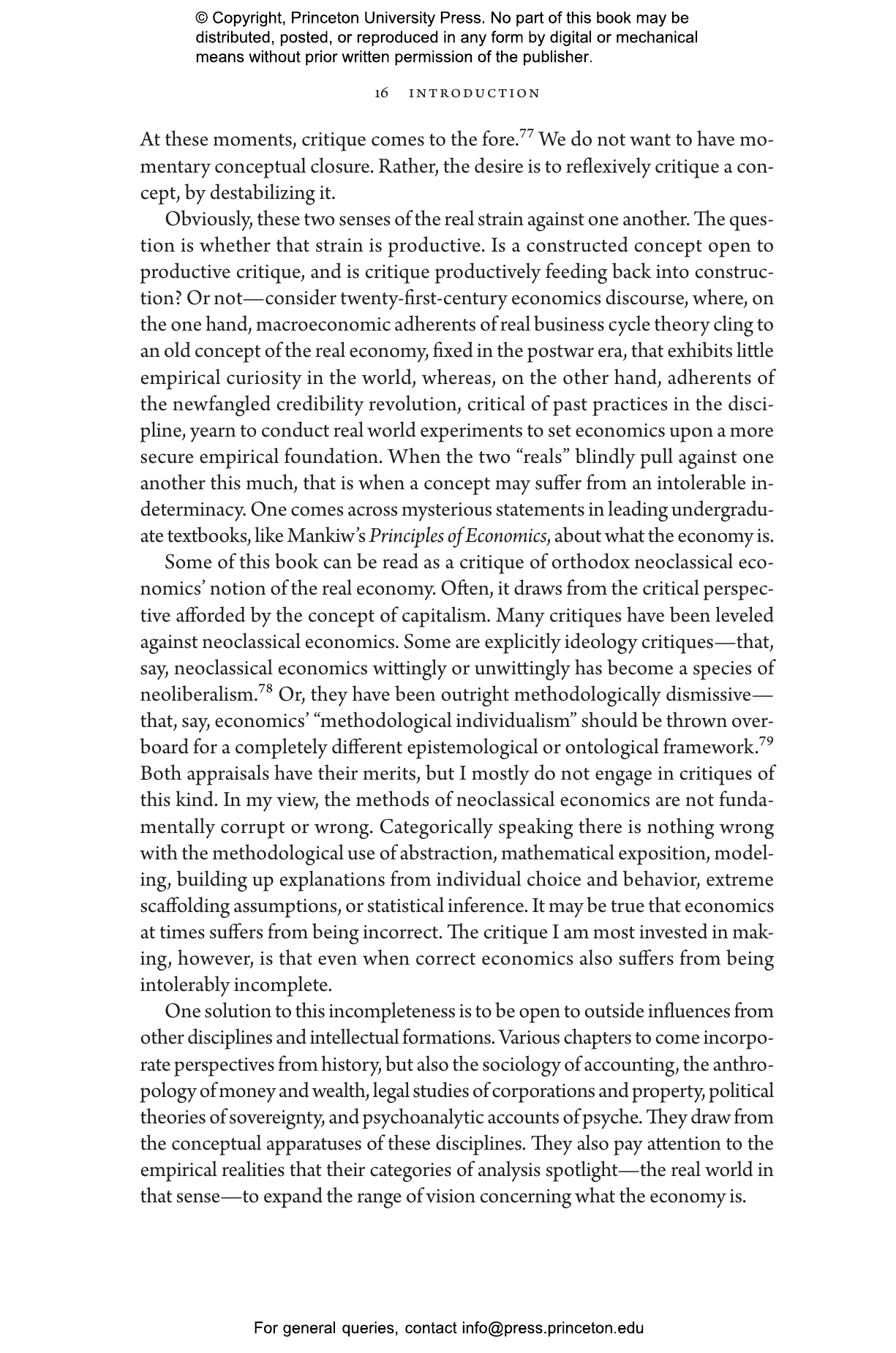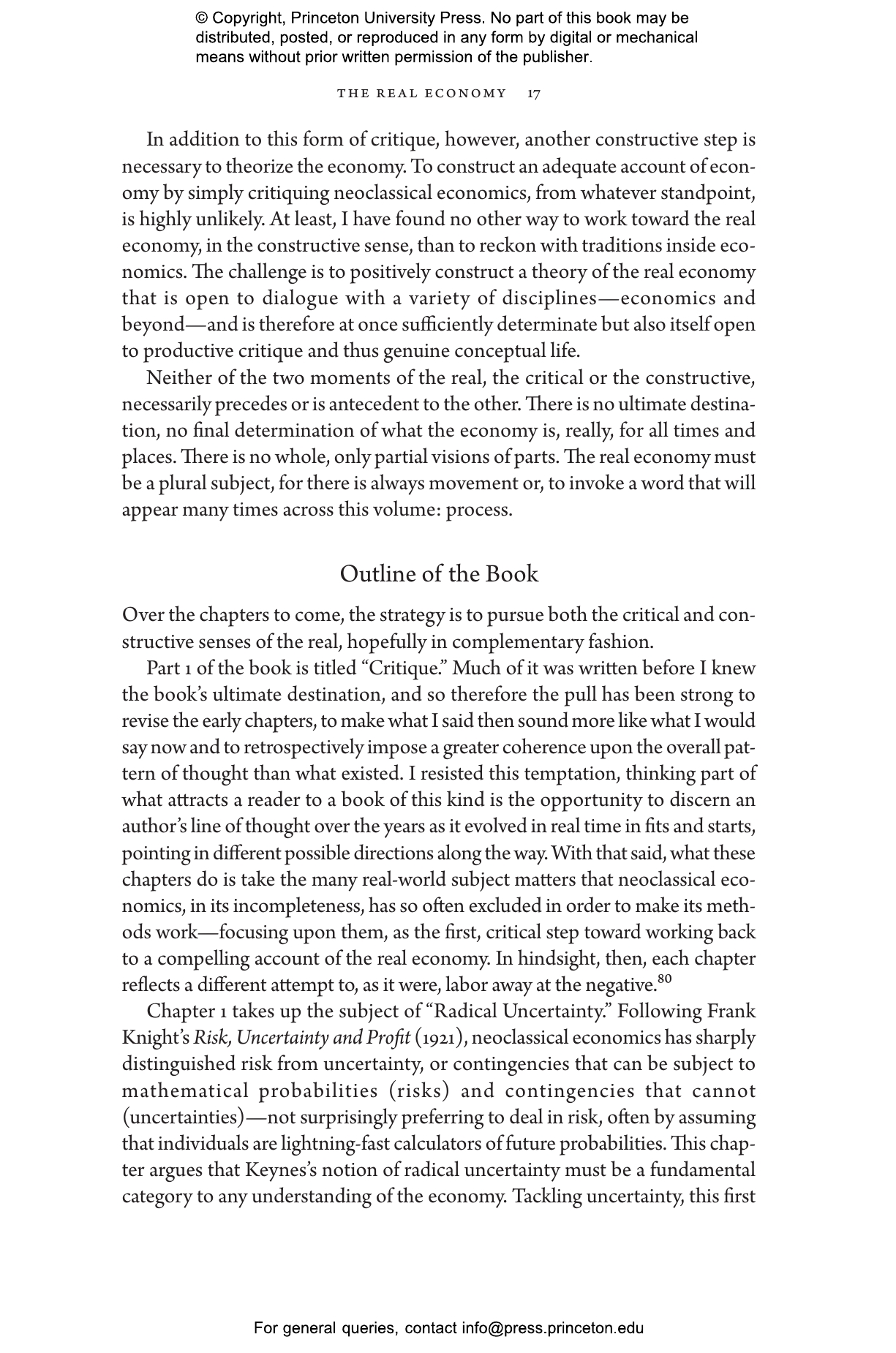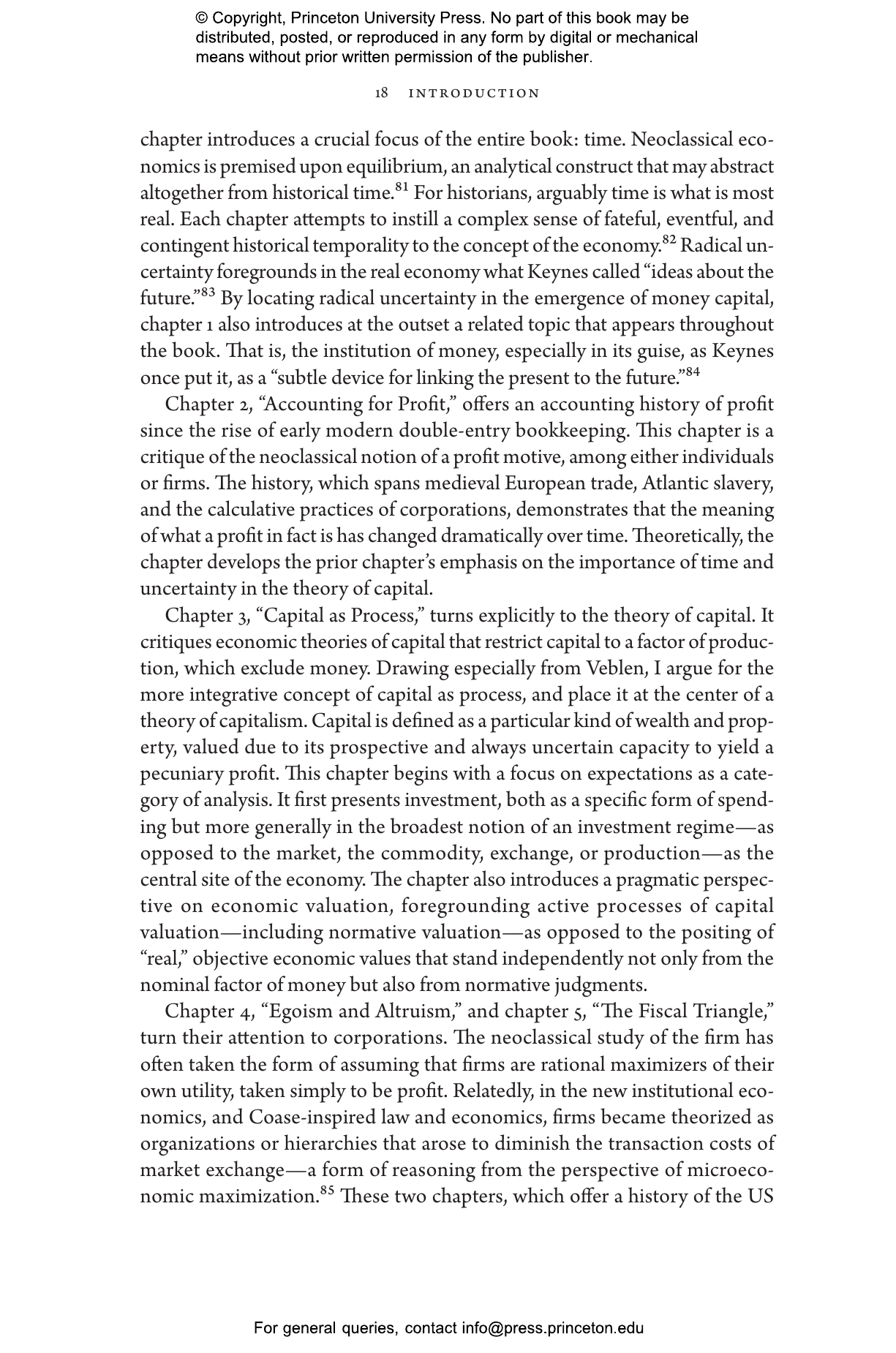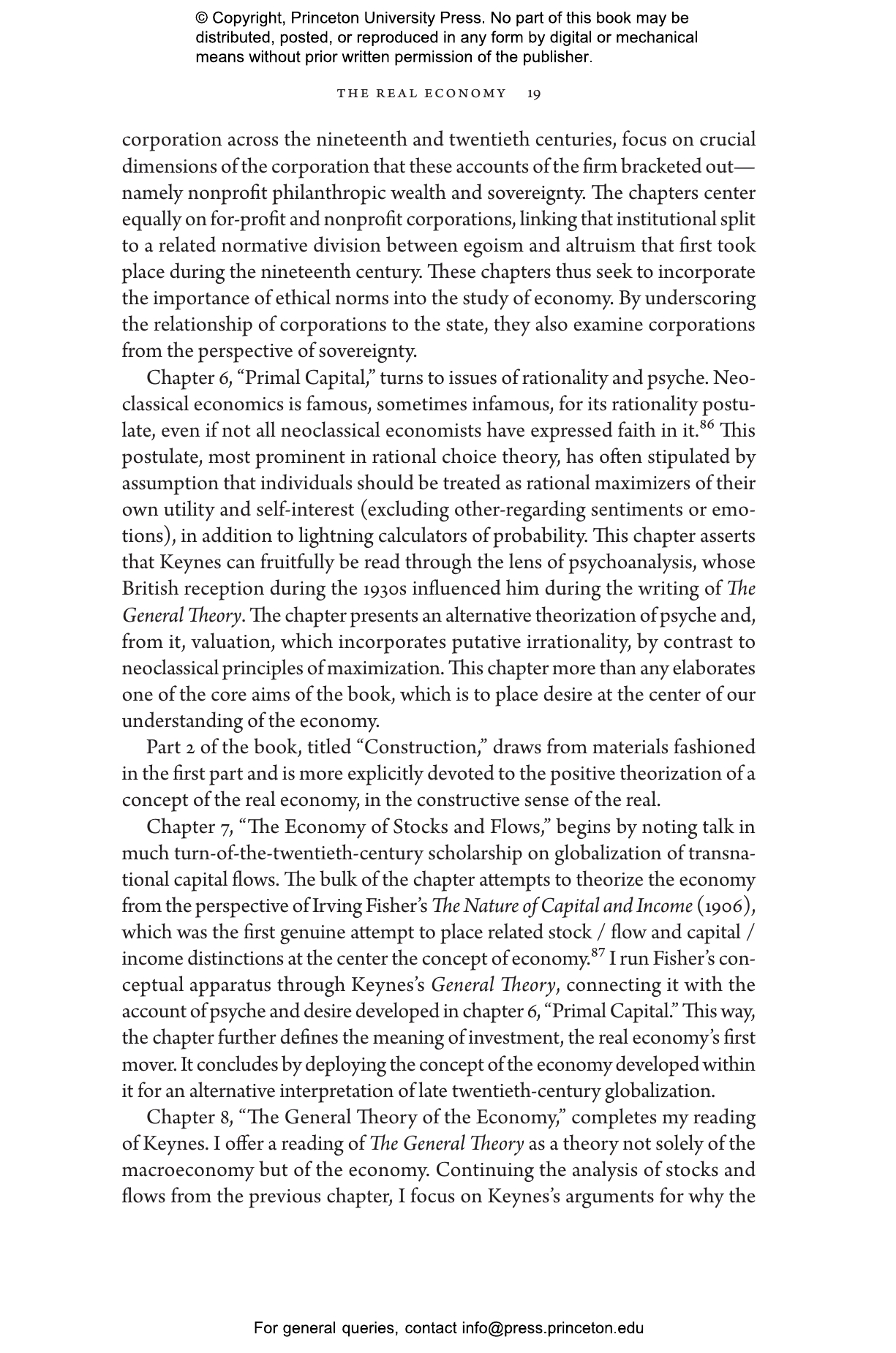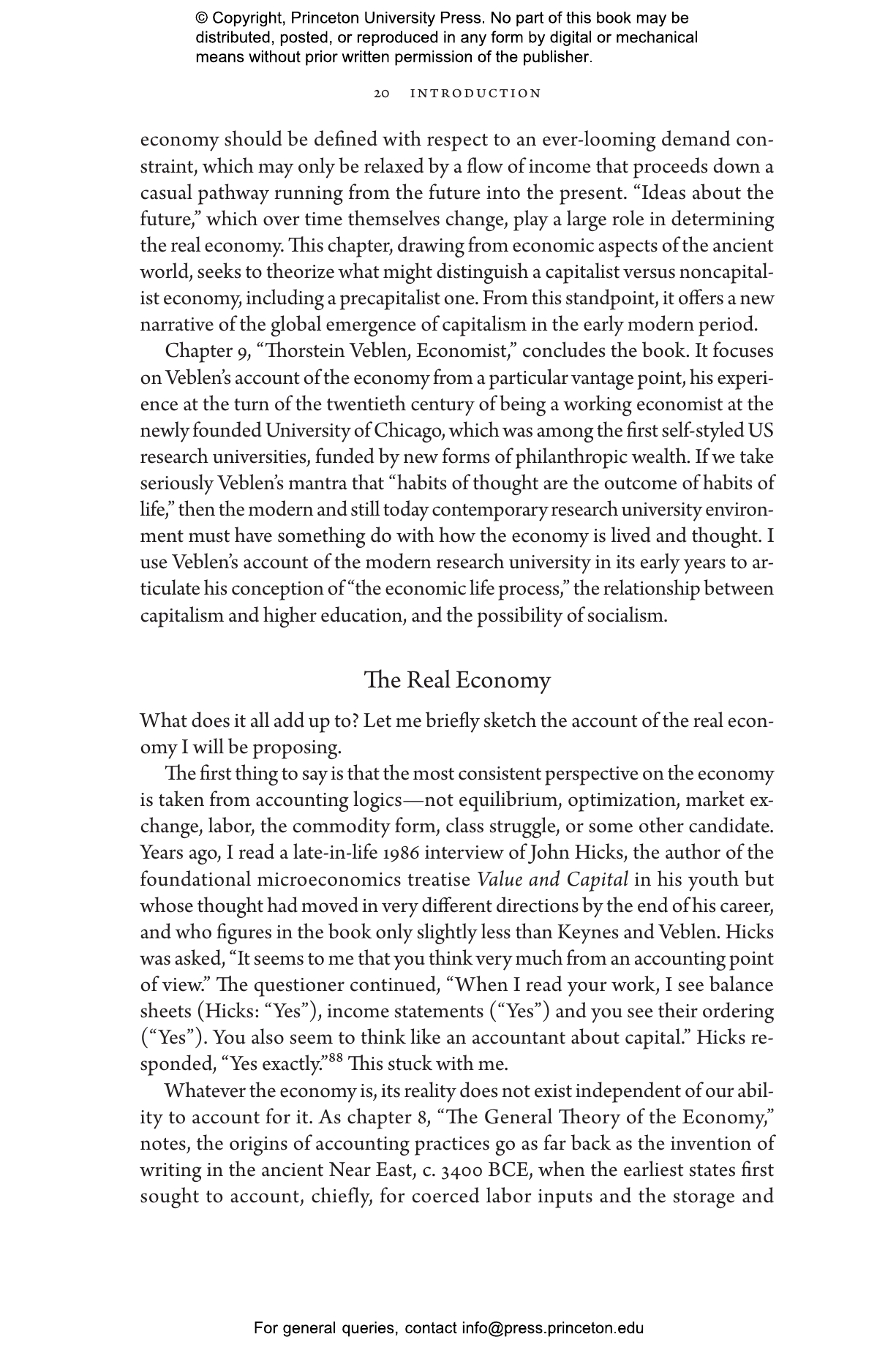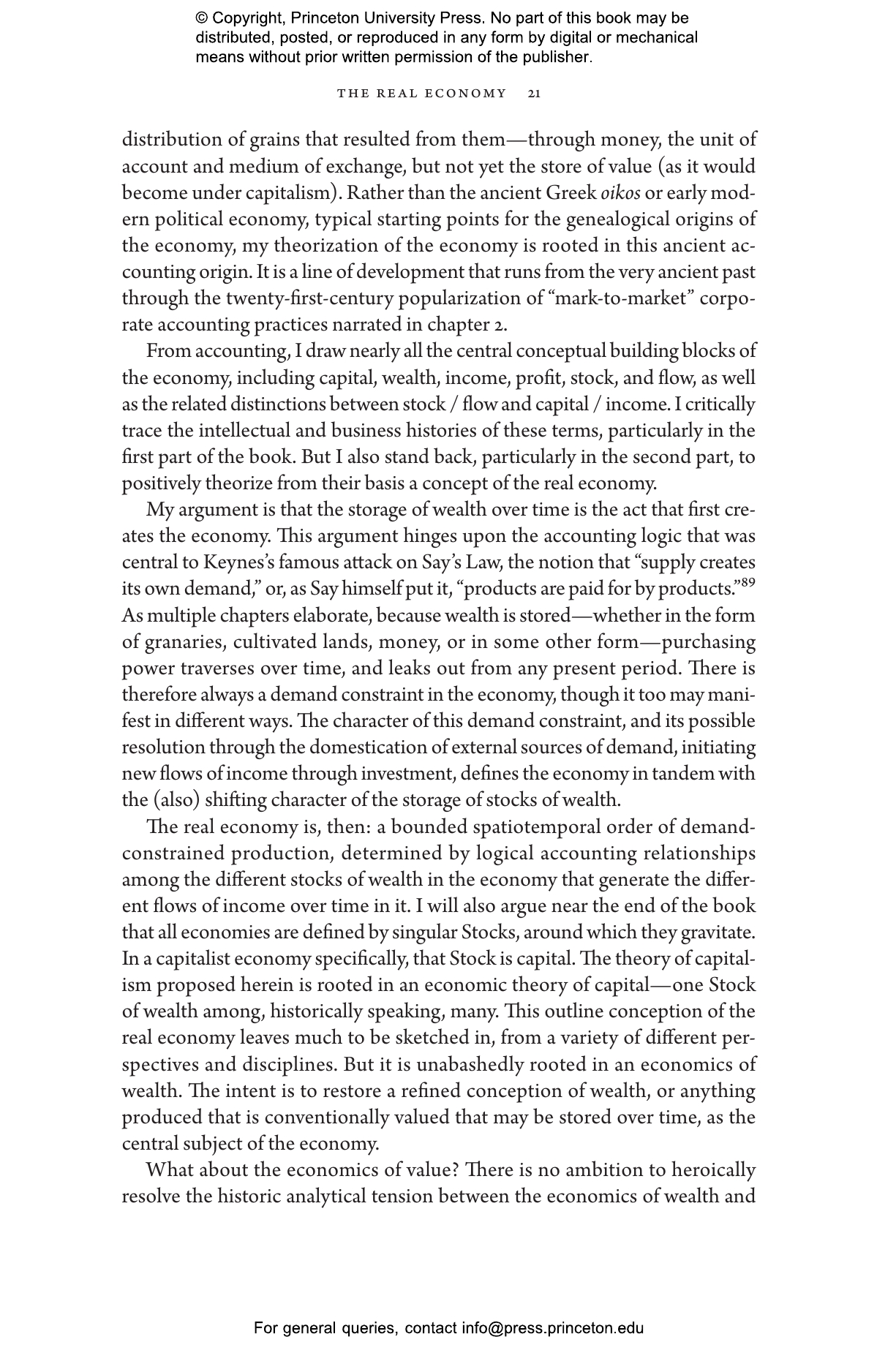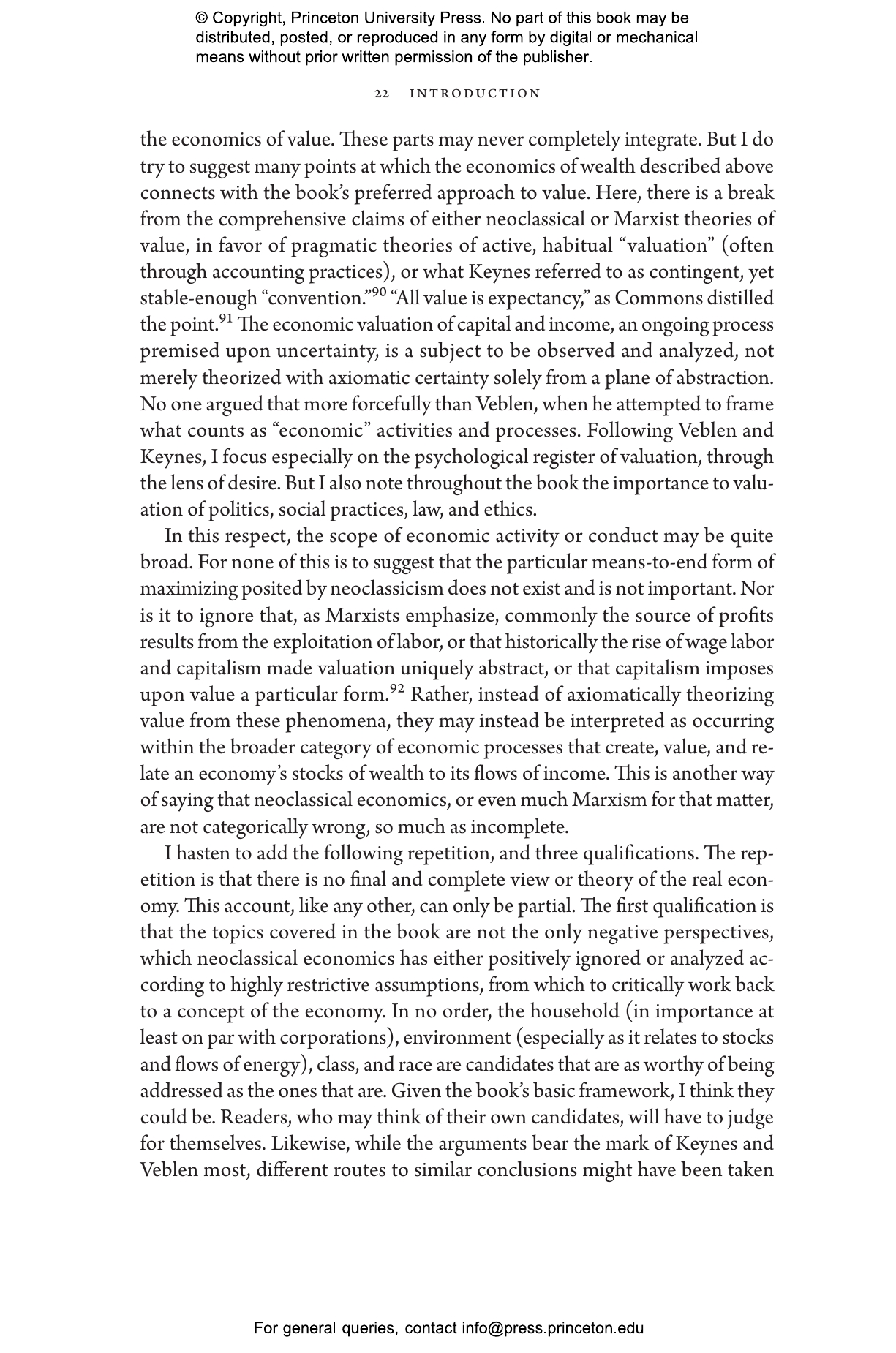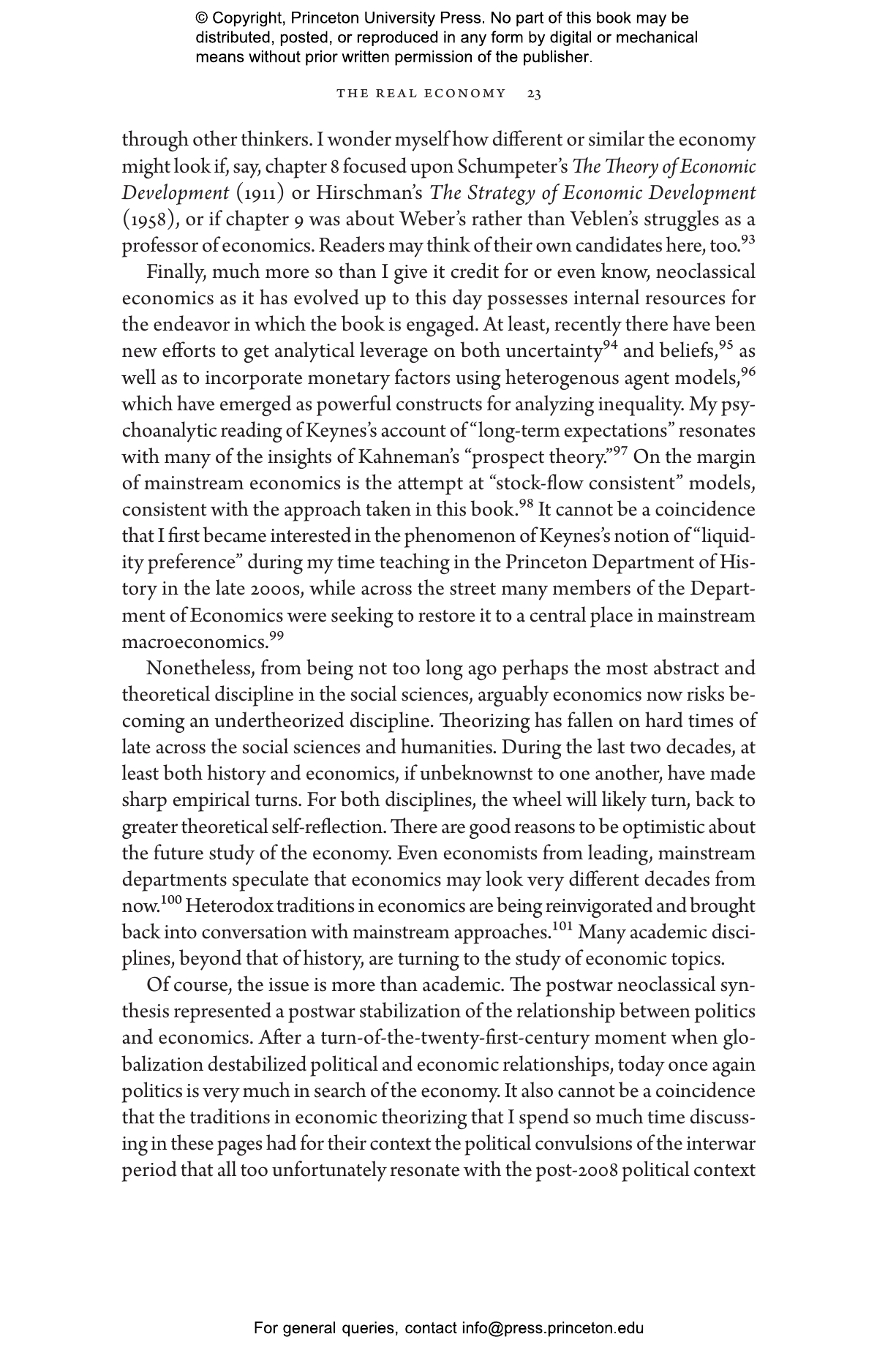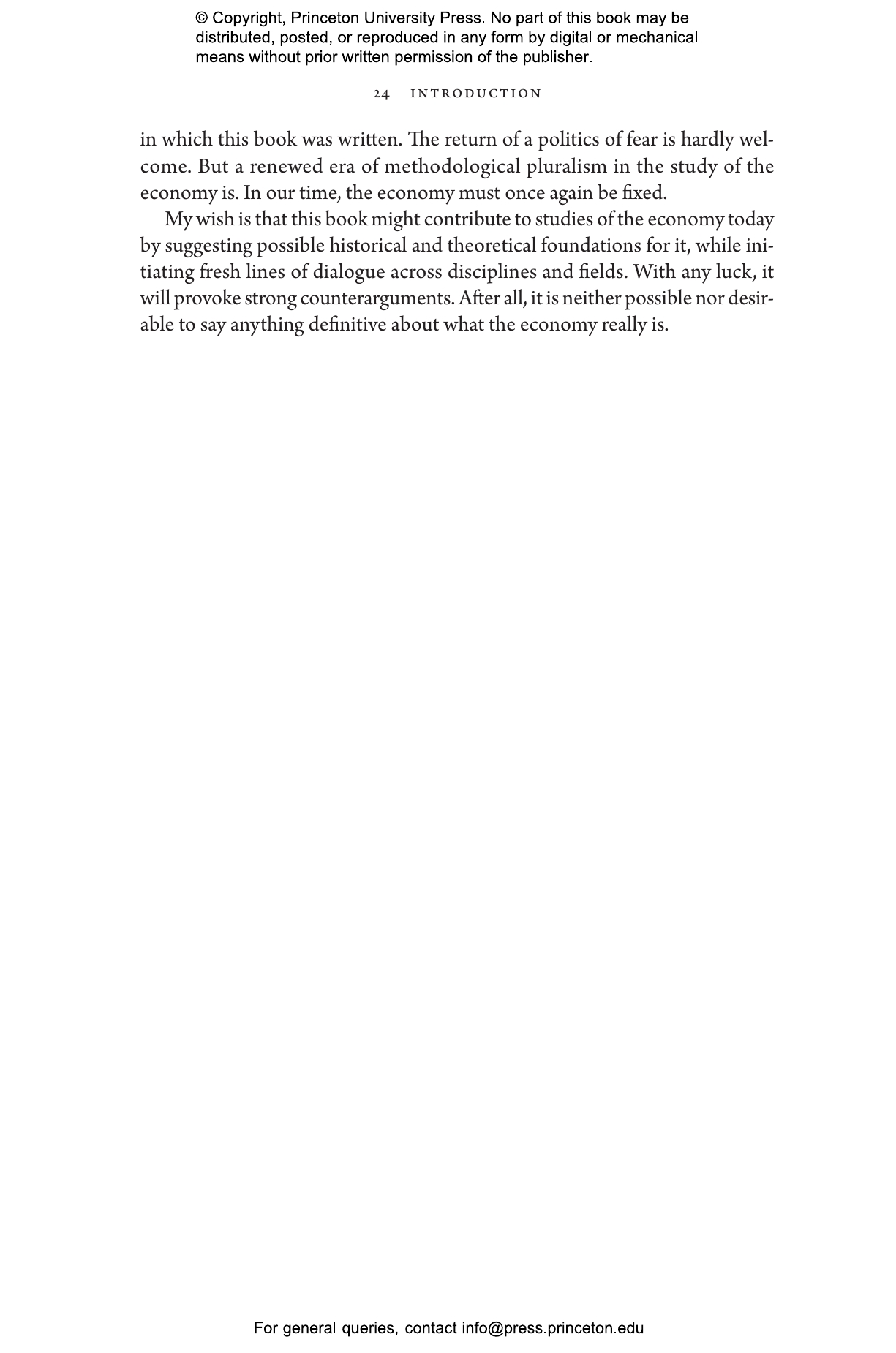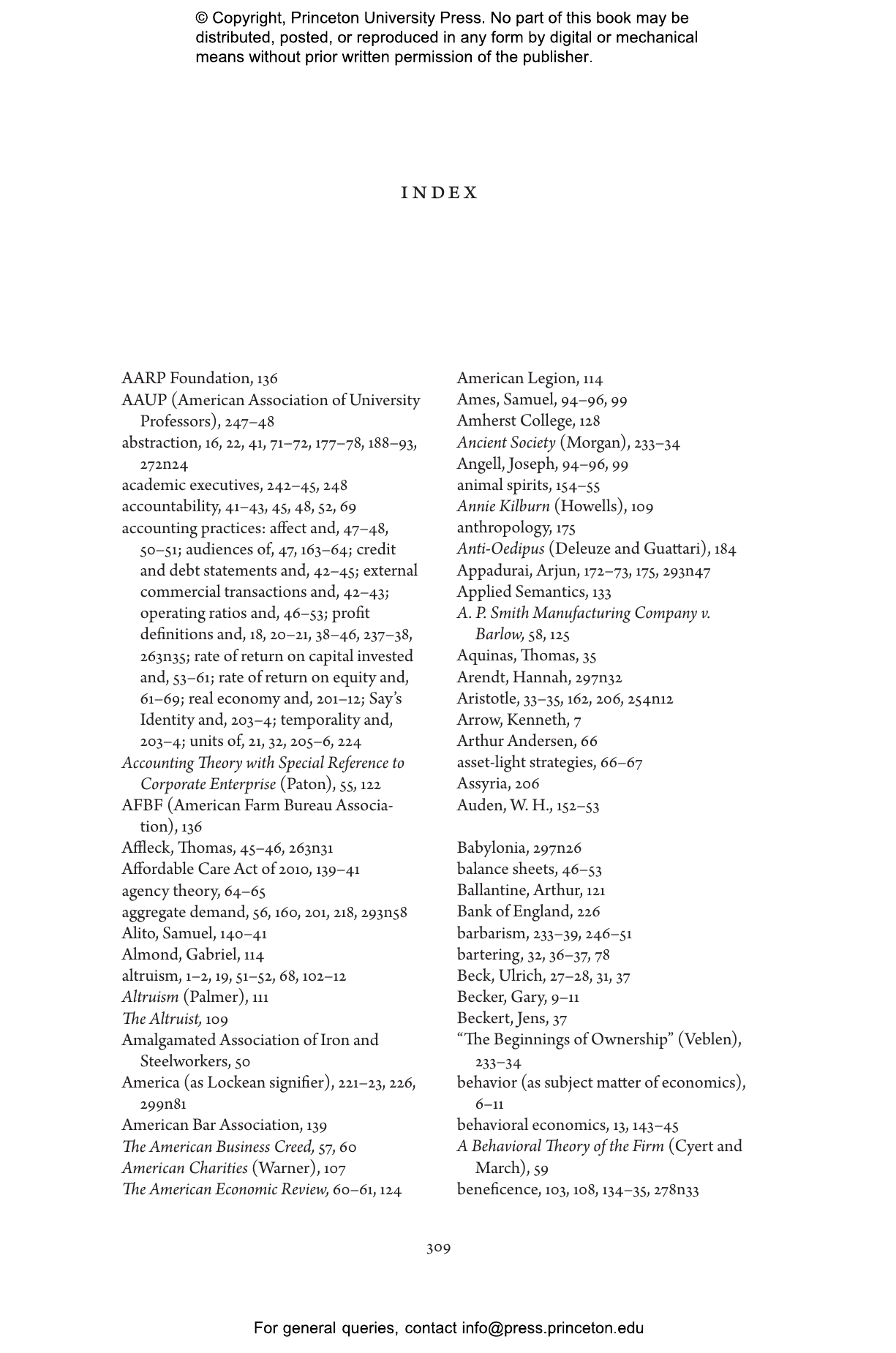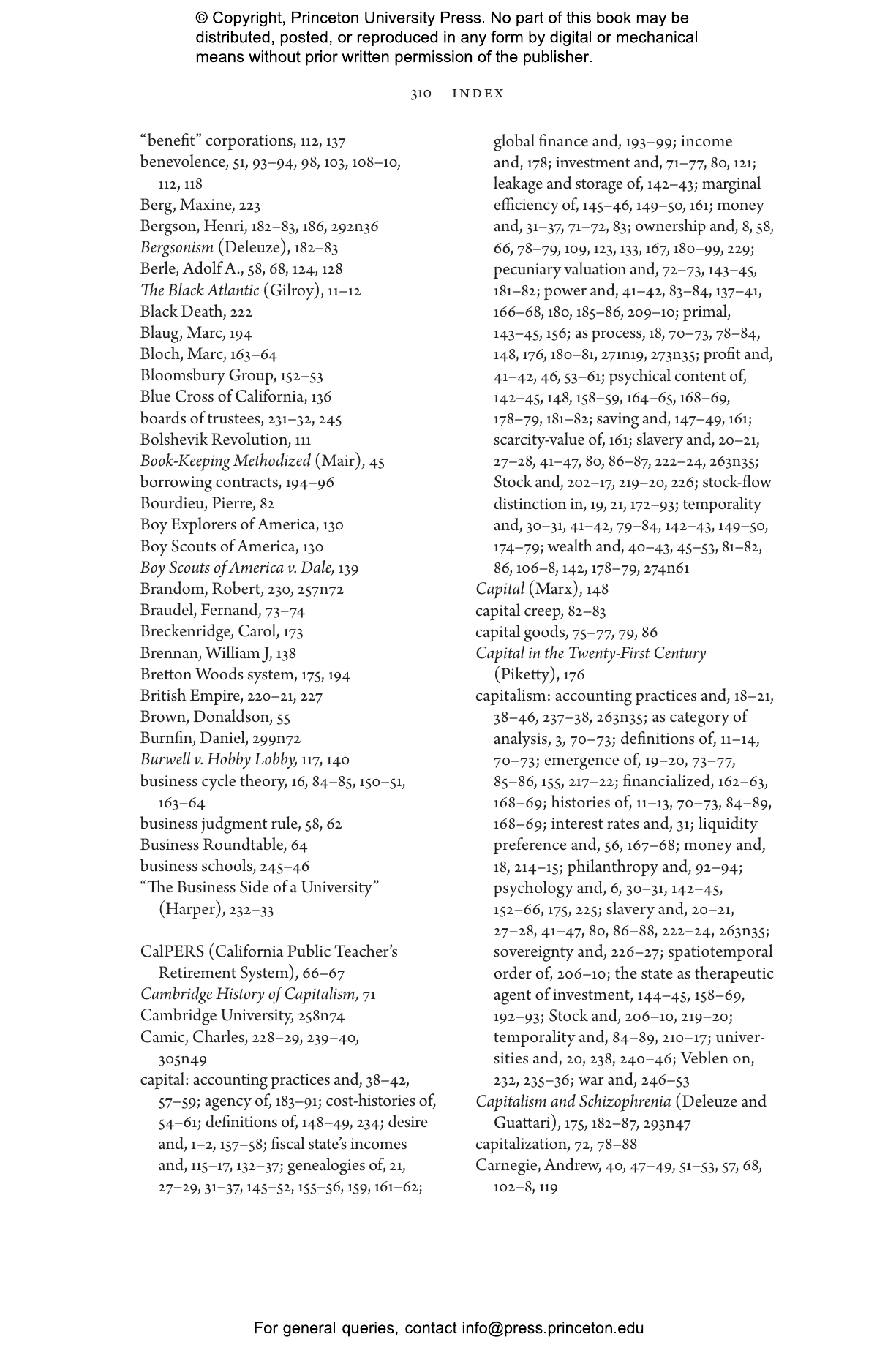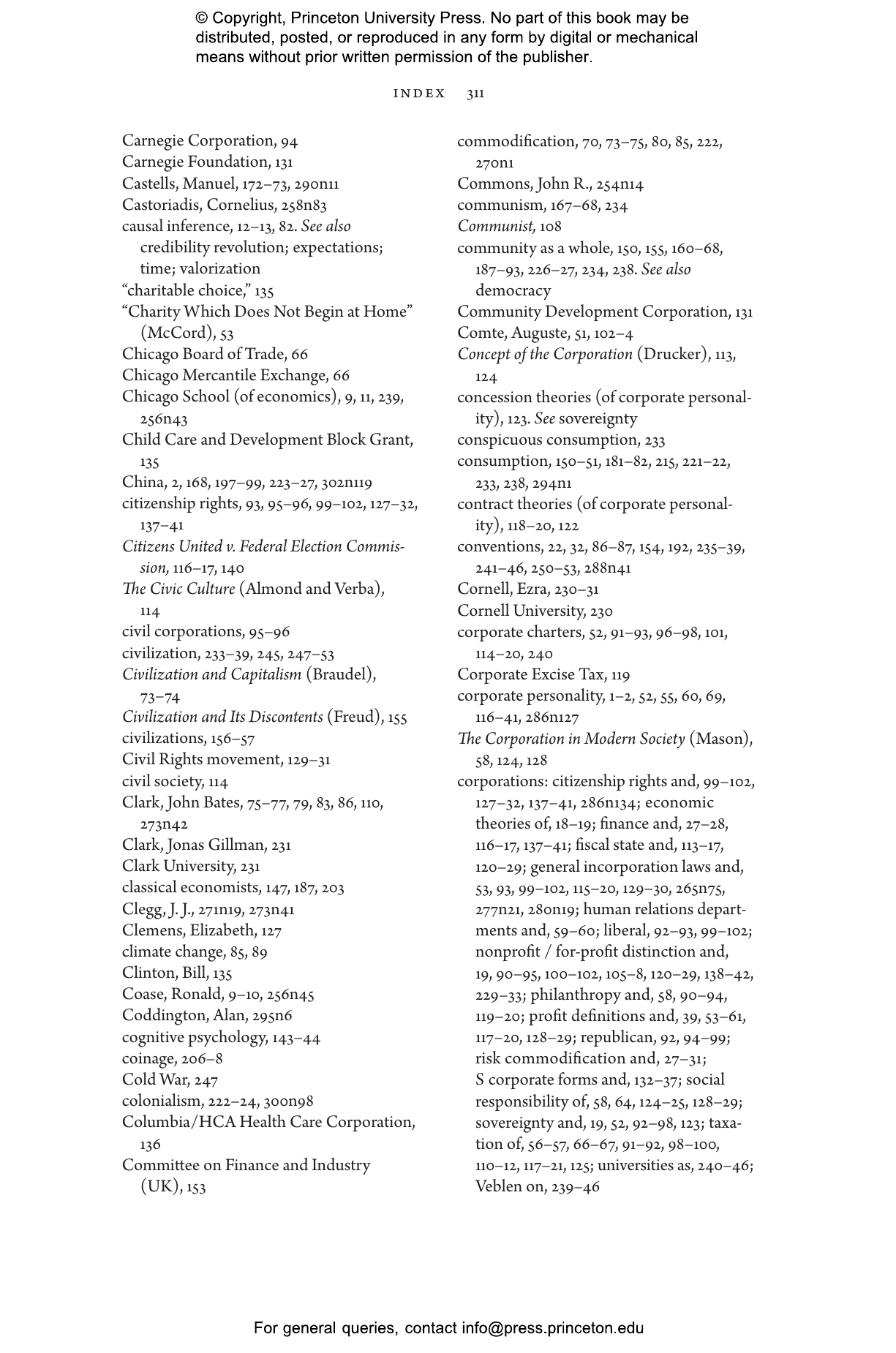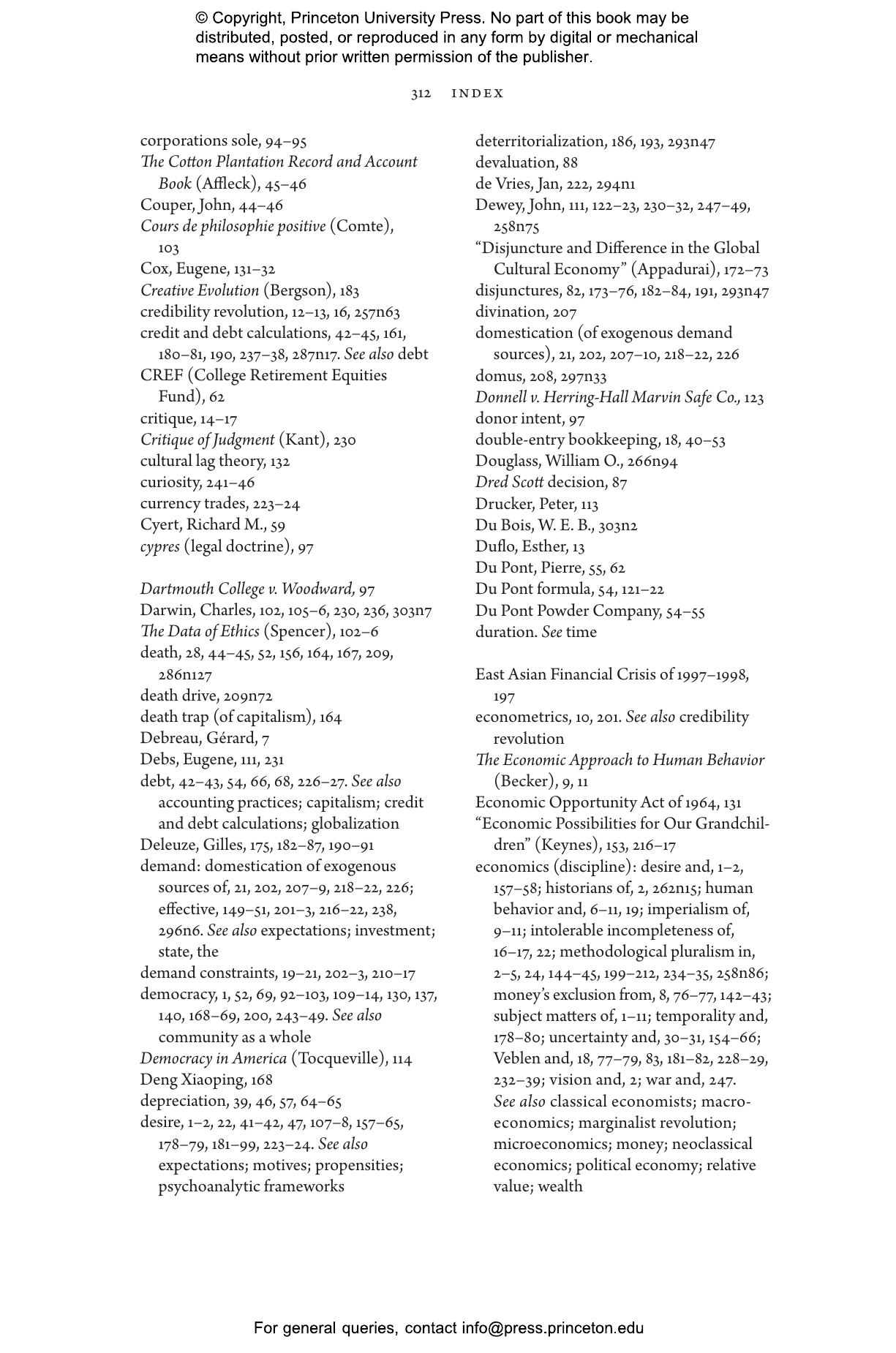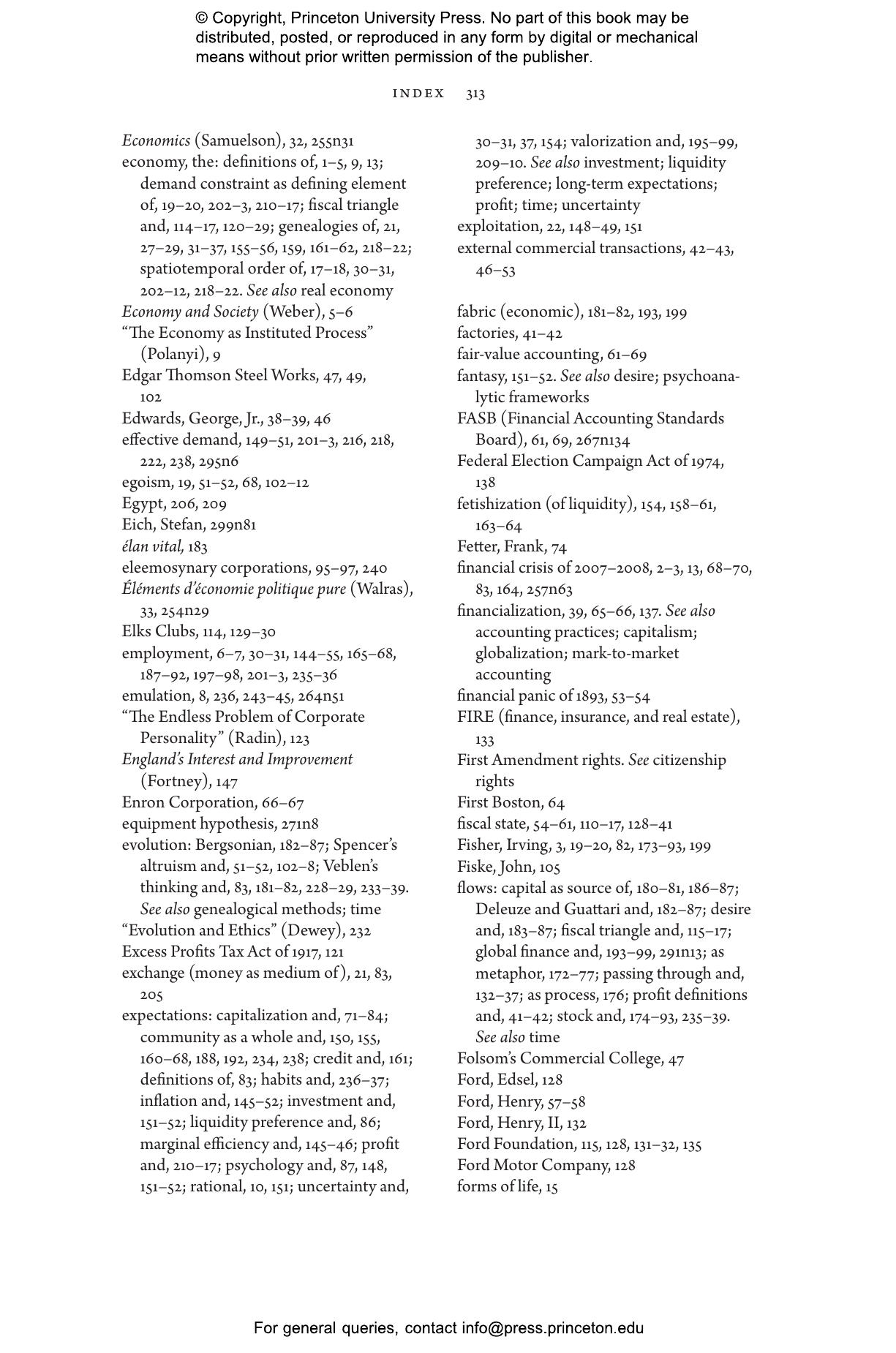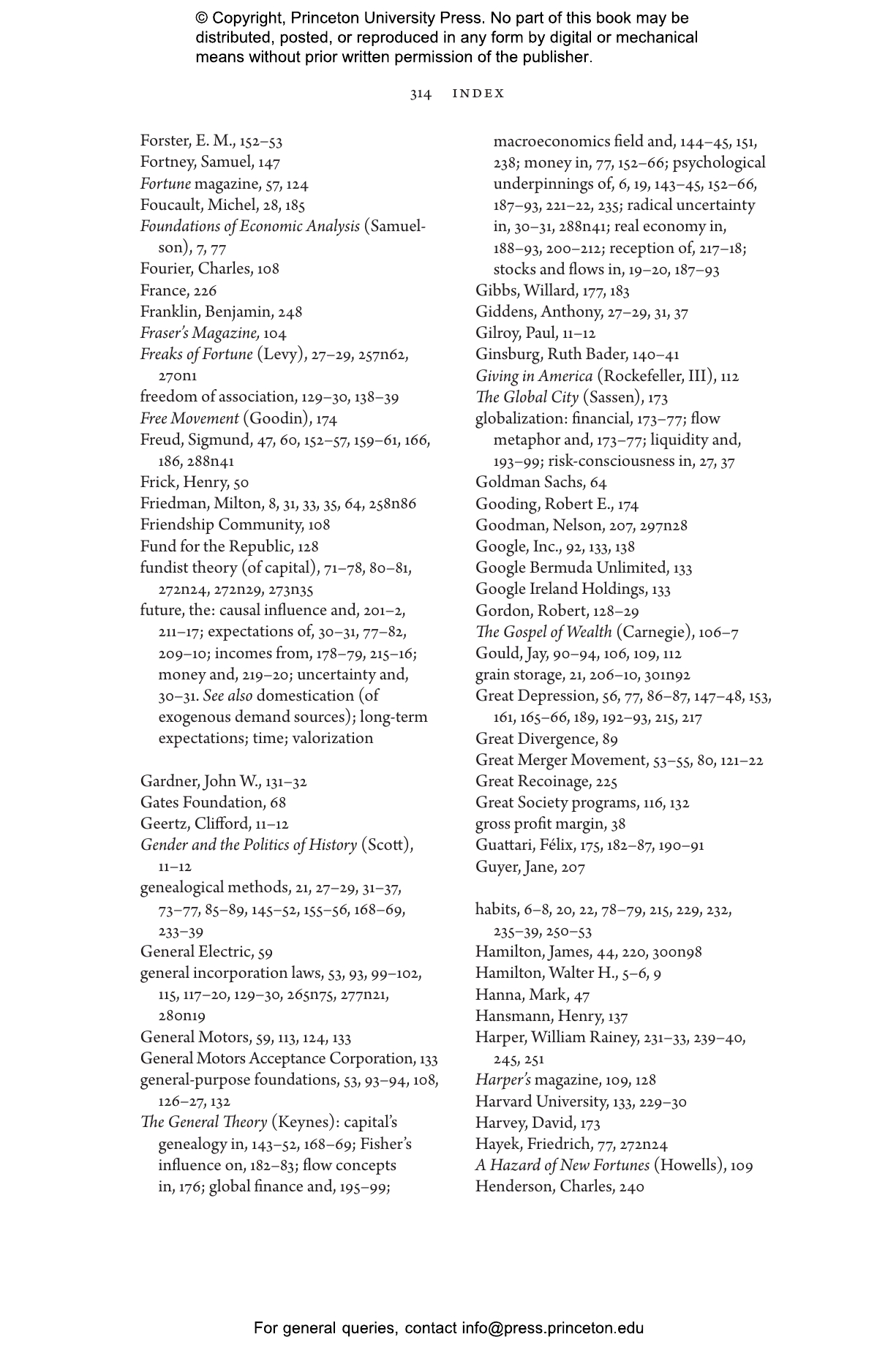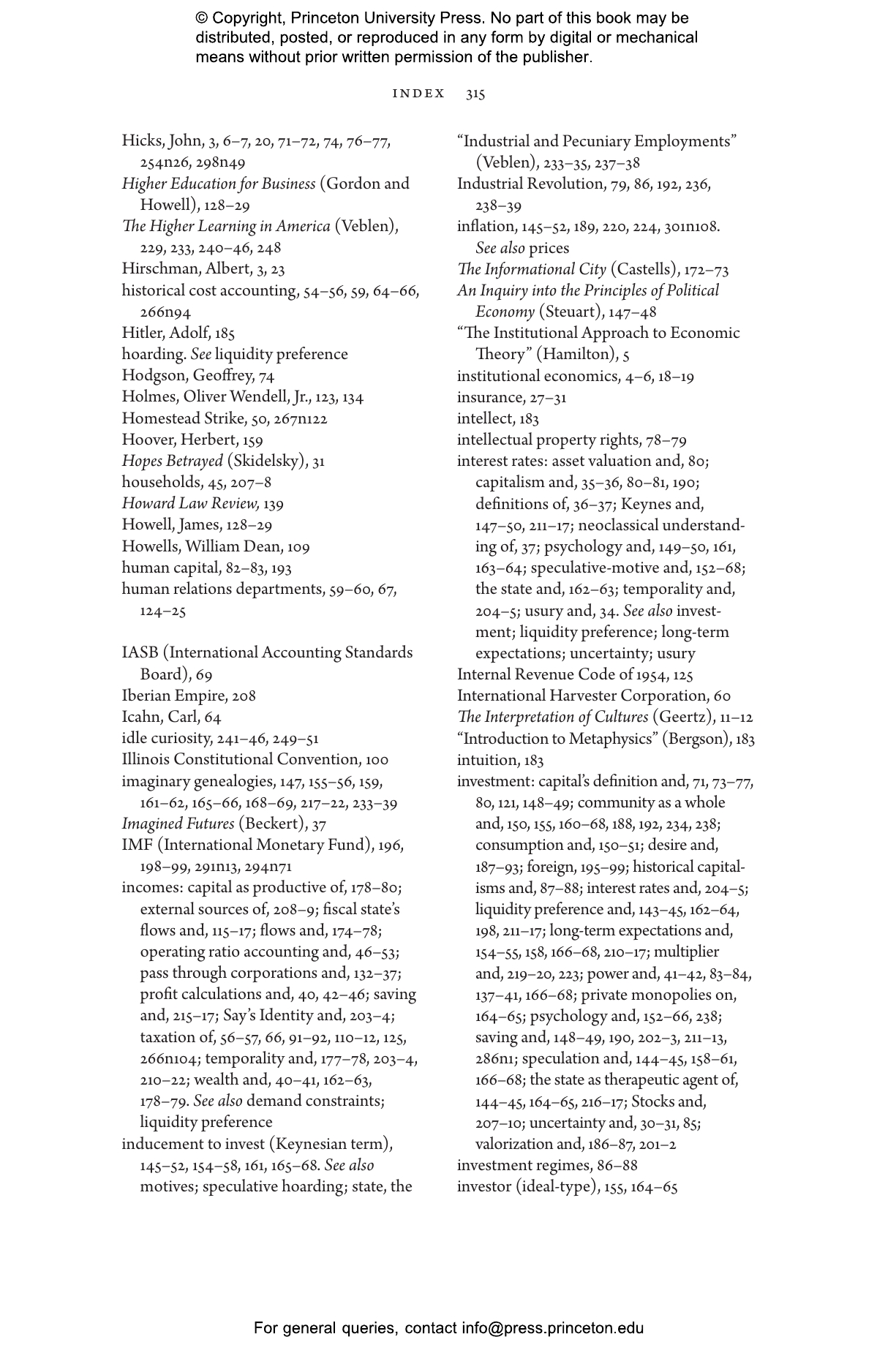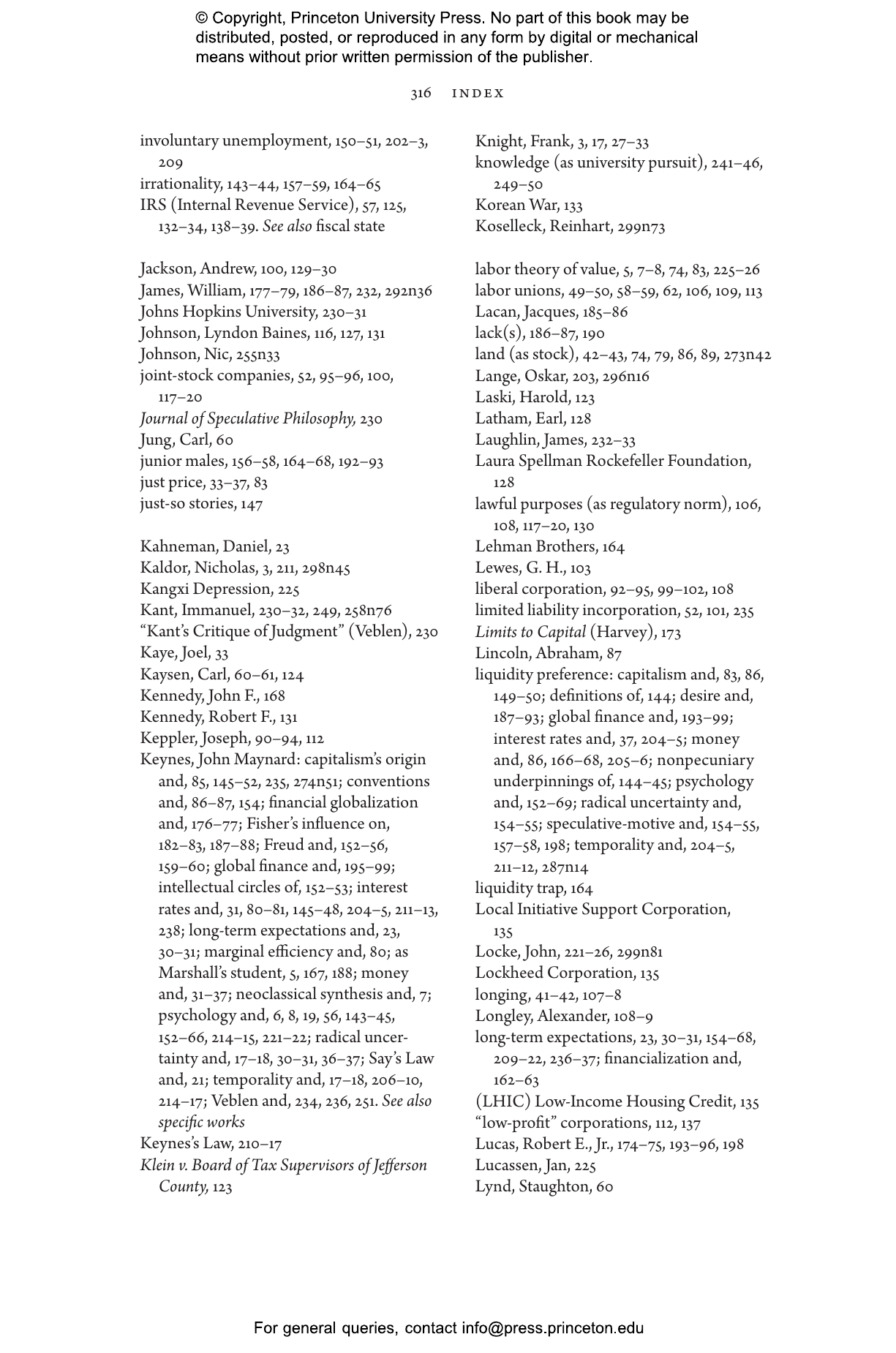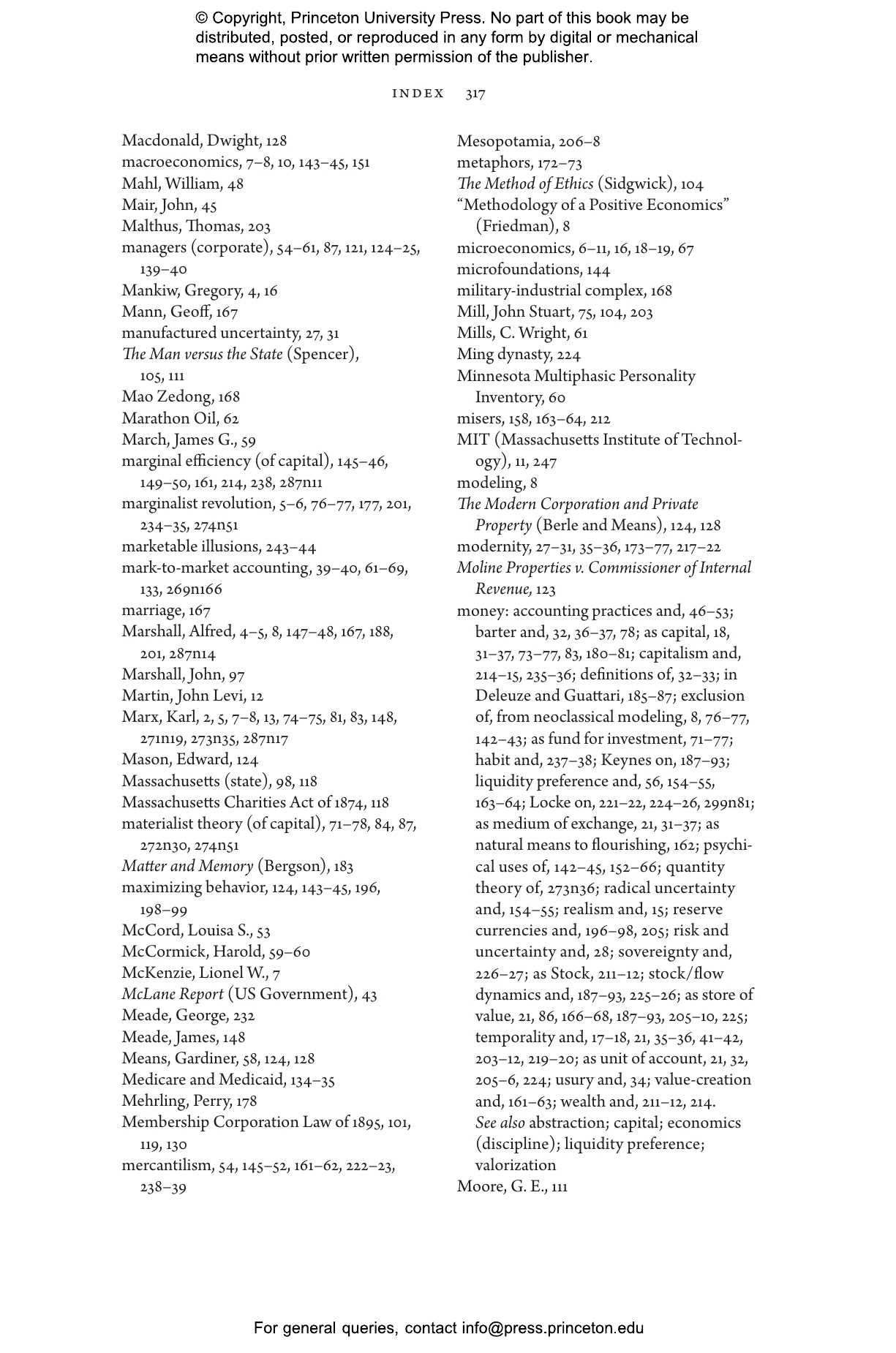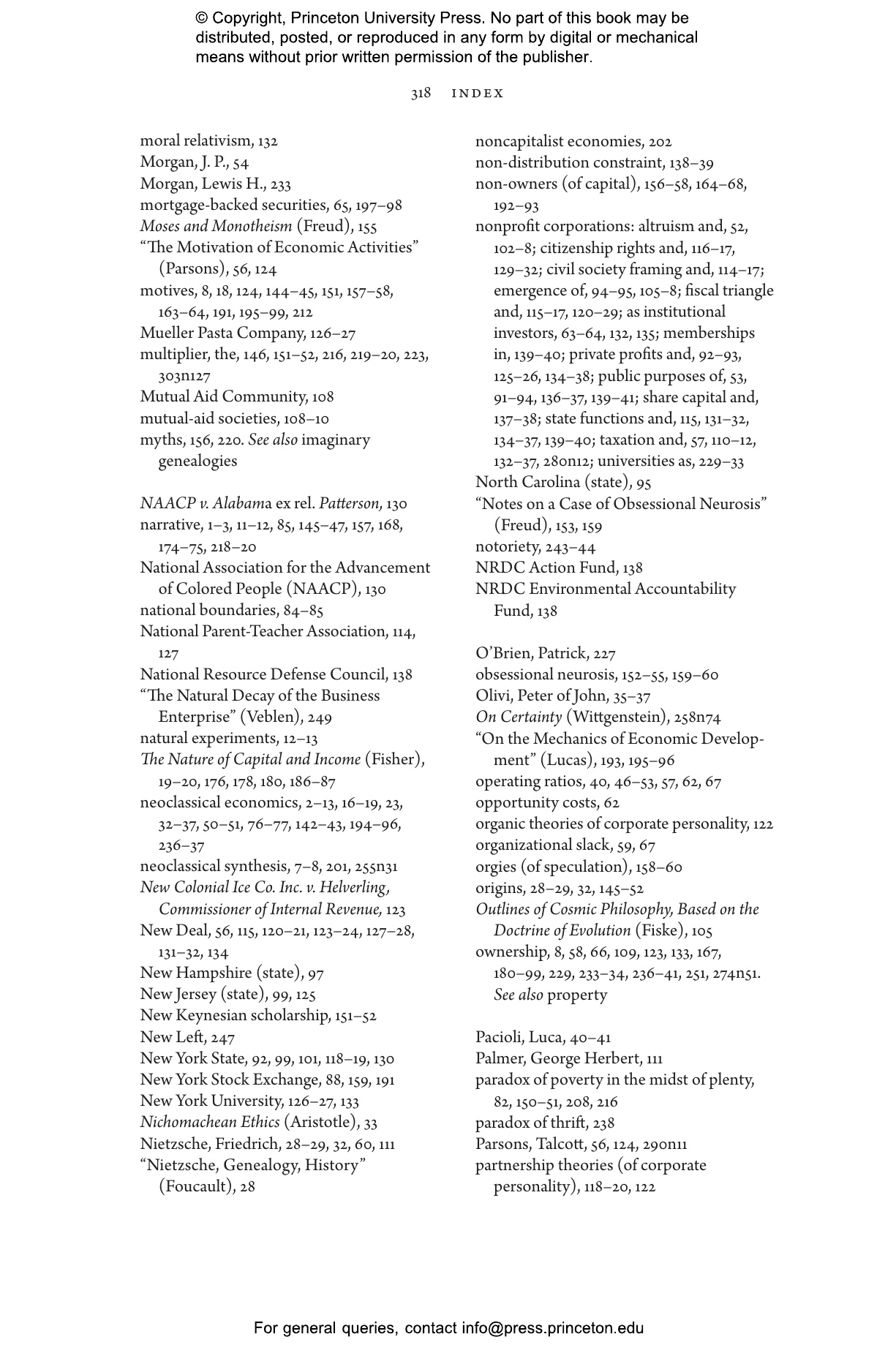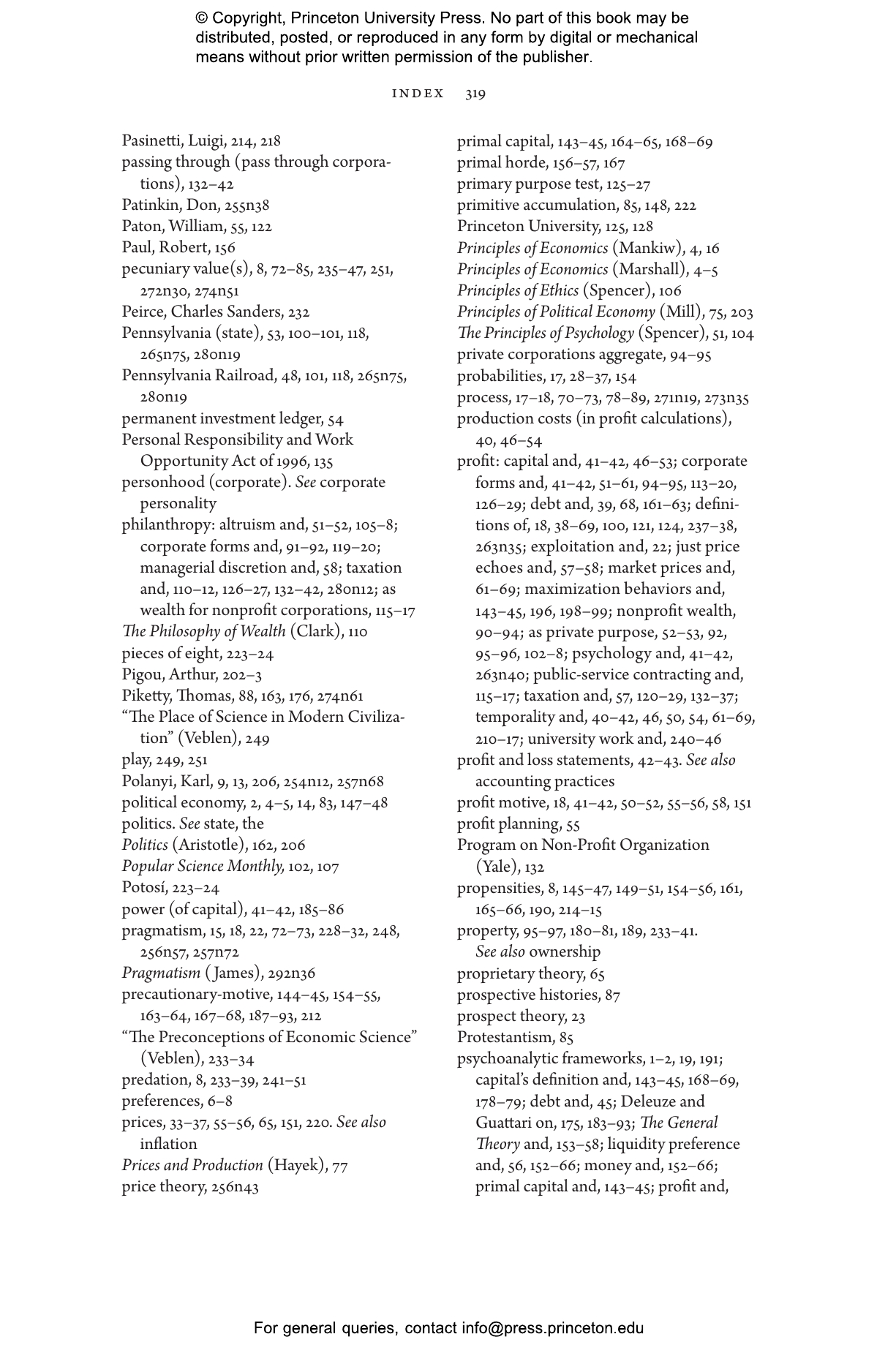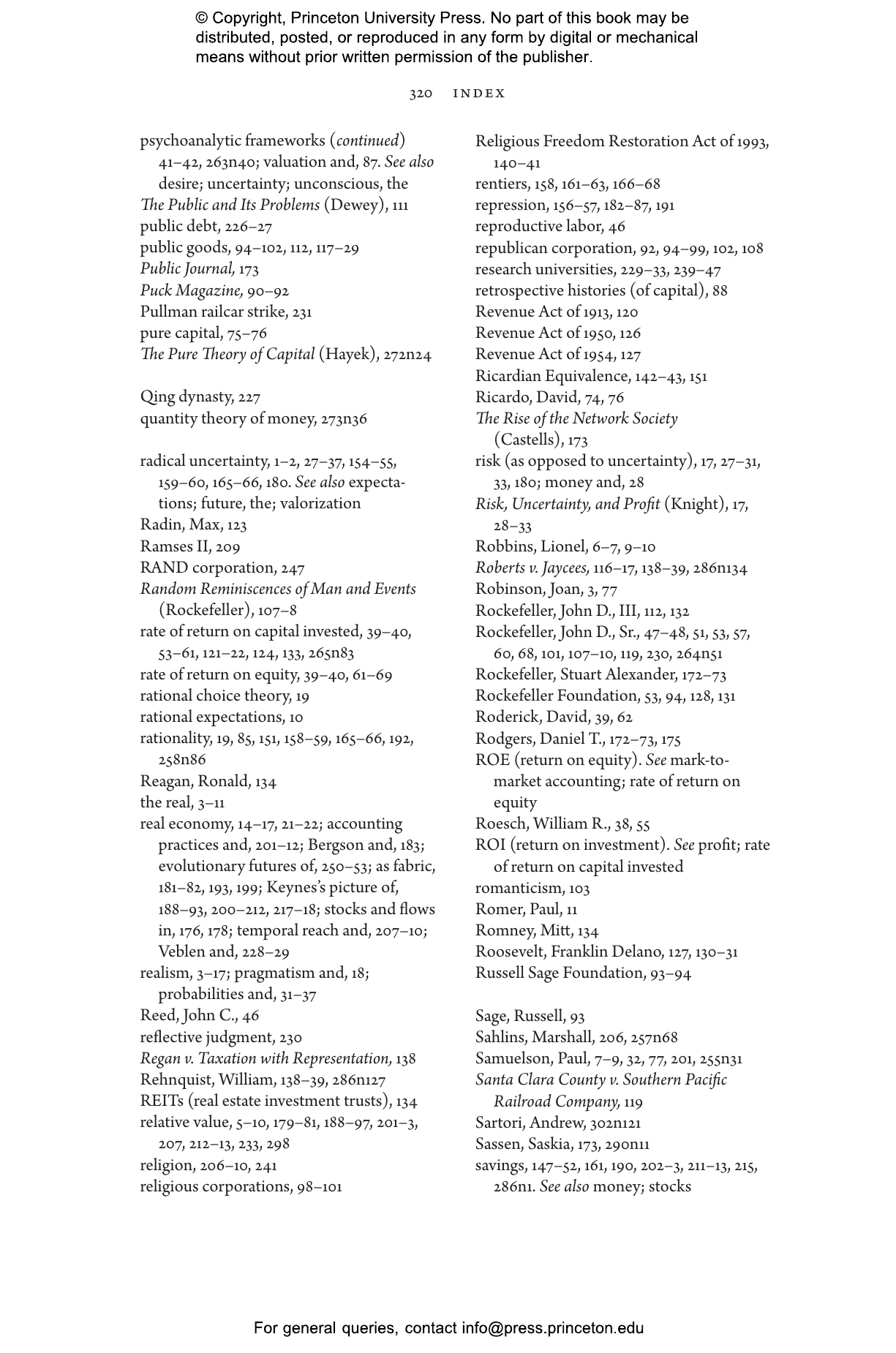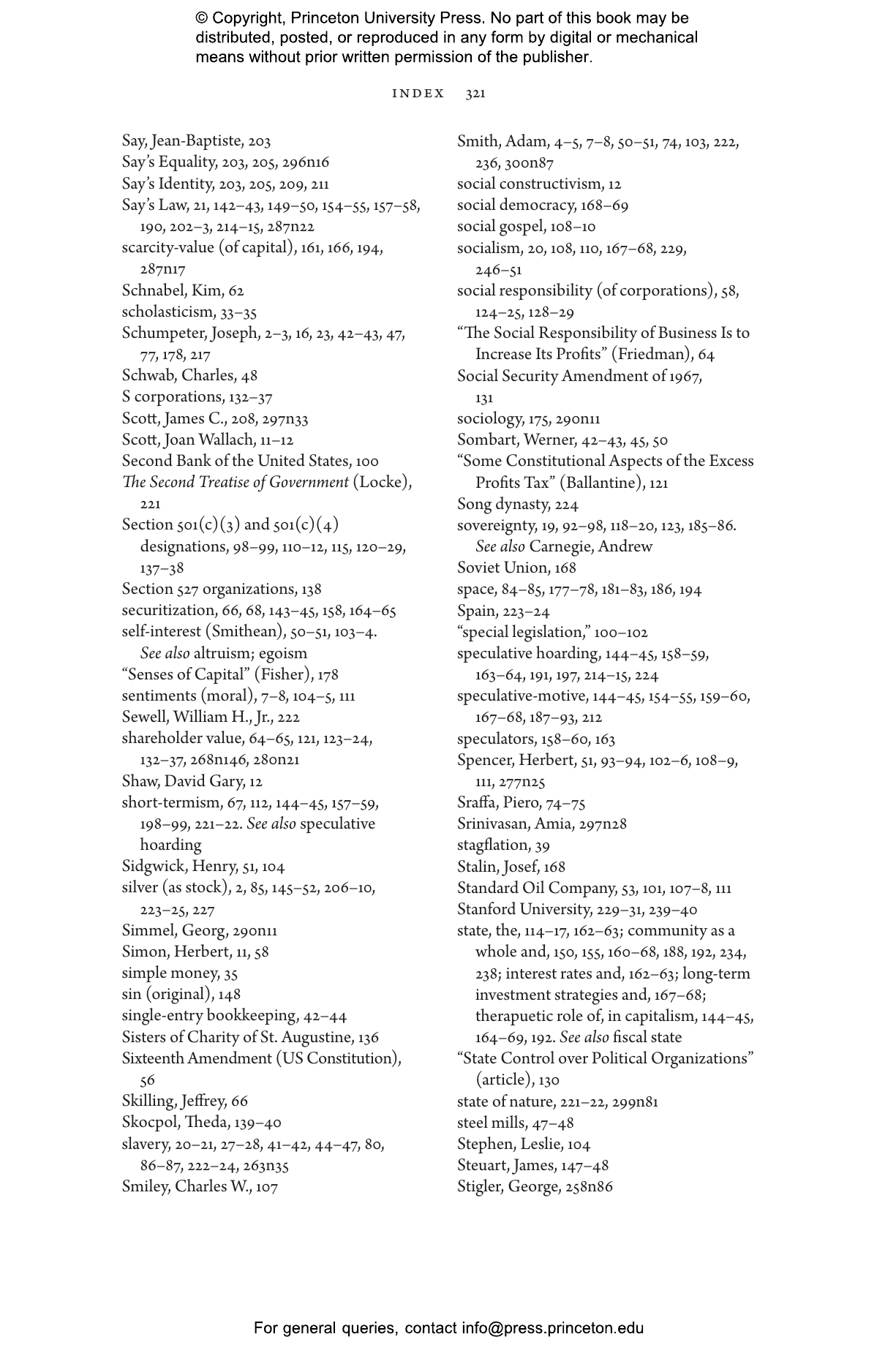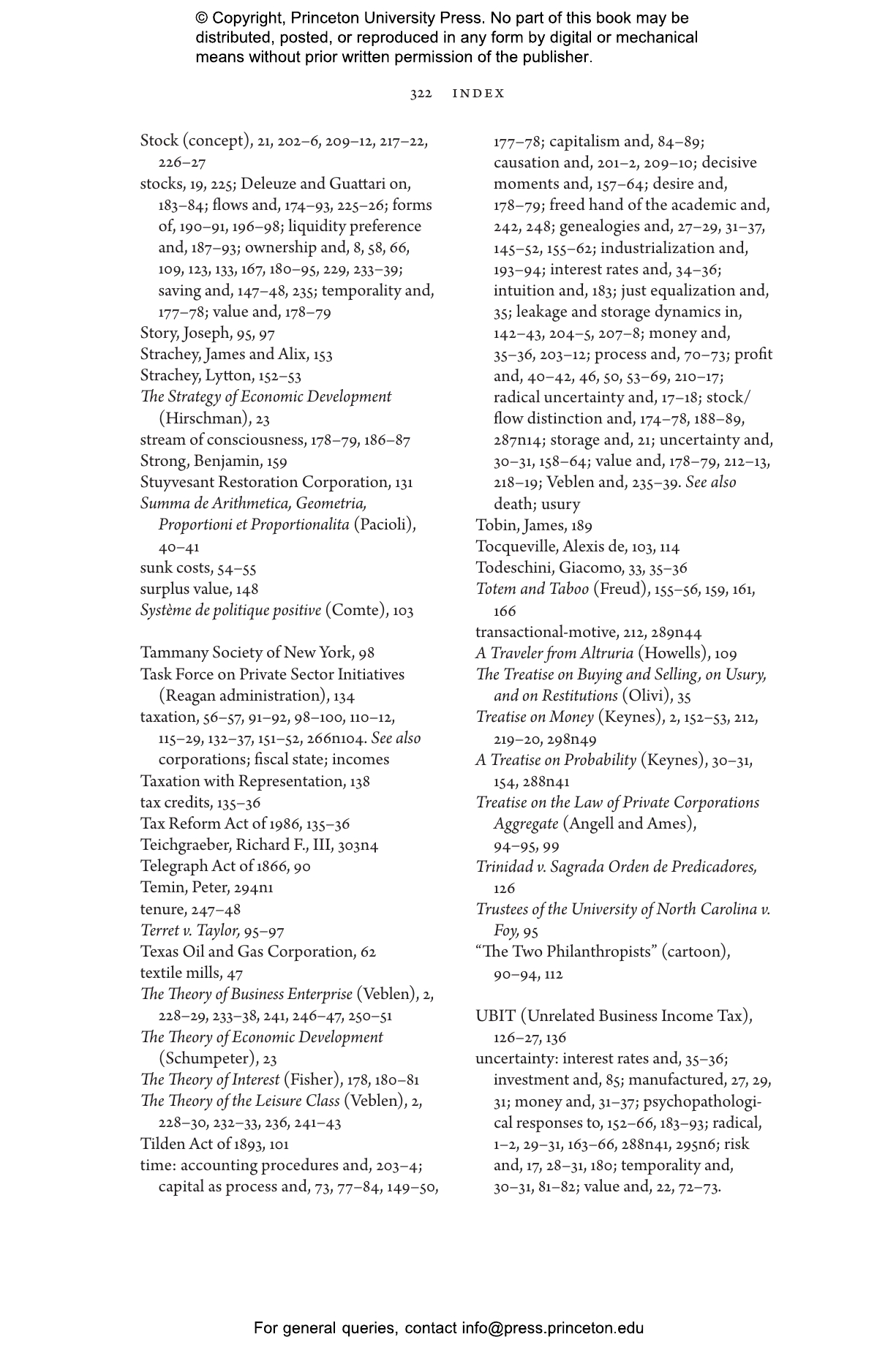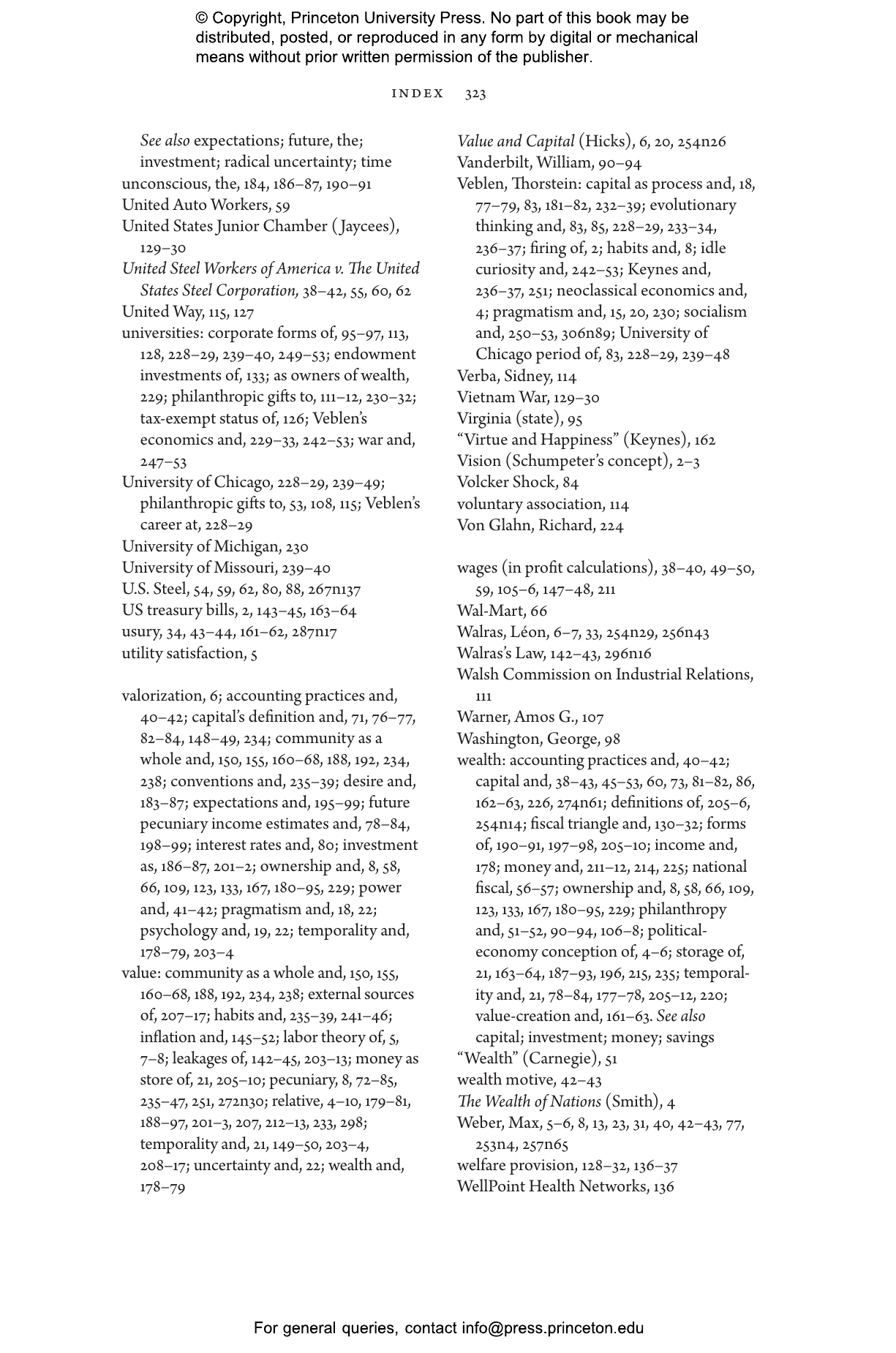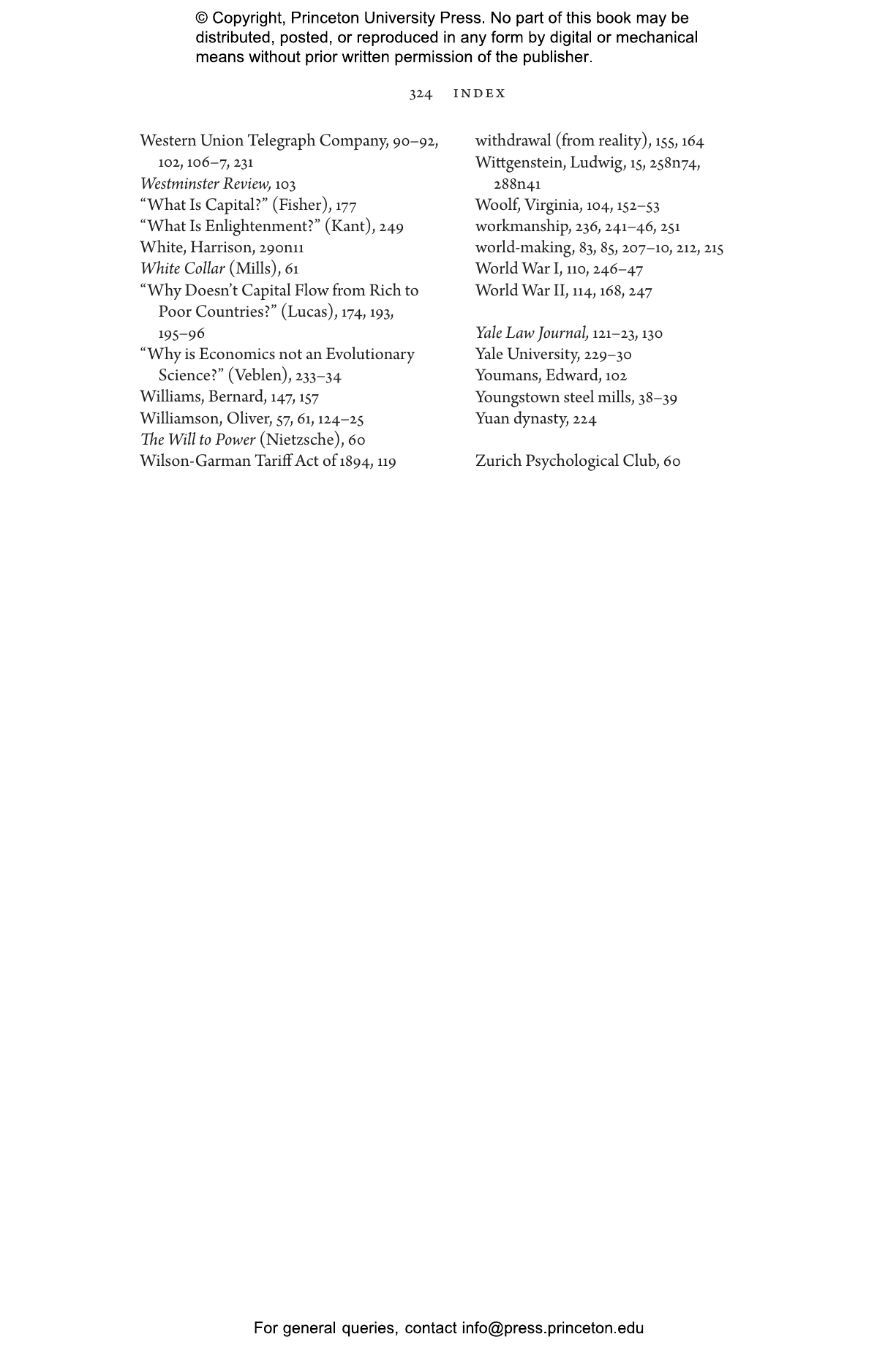What is the economy, really? Is it a “market sector,” a “general equilibrium,” or the “gross domestic product”? Economics today has become so preoccupied with methods that economists risk losing sight of the economy itself. Meanwhile, other disciplines, although often intent on criticizing the methods of economics, have failed to articulate an alternative vision of the economy. Before the ascent of postwar neoclassical economics, fierce debates raged, as many different visions of the economy circulated and competed with one another. In The Real Economy, Jonathan Levy returns to the spirit of this earlier era, which, in all its contentiousness, gave birth to the discipline of economics.
Drawing inspiration particularly from Thorstein Veblen and John Maynard Keynes, Levy proposes a theory of the economy that is open to rich empirical and historical scrutiny, covering topics that include the emergence of capitalism, the notion of radical uncertainty, the meaning of demand, the primal desire for money, the history of corporations, and contemporary globalization. Writing for anyone interested in the study of the economy, Levy provides an invaluable provocation for a broader debate in the social sciences and humanities concerning what “the economy” is.
Jonathan Levy is professor of history at Sciences Po, Paris. He is the author of Freaks of Fortune: The Emerging World of Capitalism and Risk in America and Ages of American Capitalism: A History of the United States.
“Few historians have such a thorough understanding of the development of American capitalism. The extensive knowledge and critical perspective that emerge from these writings will provide a unique and indispensable contribution to the debate. The book is one of a kind.”—Francesco Boldizzoni, Norwegian University of Science and Technology
“Levy has an admirable ability to distill difficult economic theories to their essence, evaluate their usefulness, and then find historical applications. He does not simply point out shortcomings. Instead, he resuscitates ideas, concepts, and theories from the past that were lost on the cutting-room floor as neoclassical economics was formalized. This book will serve as an inspiration and guide to those who seek to develop new categories and theoretical frameworks designed to grapple with the ‘real economy.’”—Carl Wennerlind, Barnard College
“The Real Economy poses deep, difficult questions, for economists, historians, and everyone interested in the risky, uncertain economy of modern times—and illuminates all of them, in a brilliant array of historical investigation.”—Emma Rothschild, author of Economic Sentiments: Adam Smith, Condorcet, and the Enlightenment
“Contemporary economics is not about the economy but about methodologies that sketch a highly incomplete picture of the economy. In this brilliant set of essays, Levy develops a counternarrative that draws on big names in economic thought, including Thorstein Veblen and John Maynard Keynes, and explores themes that are rarely touched by mainstream economists, such as uncertainty, money, and the separation of corporations into for-profits and nonprofits. A must-read for anybody in search of the real economy.”—Katharina Pistor, author of The Code of Capital: How the Law Creates Wealth and Inequality
“With dazzling erudition, Jonathan Levy takes readers on an expansive tour of the elusive terrain we call the ‘economy.’ Levy’s creative reading of Keynes’s General Theory through Freud is by itself worth the price of admission. An important contribution.”—Greta R. Krippner, University of Michigan
“Few thinkers in recent years have bridged the fields of history and economics more creatively than Jonathan Levy. The Real Economy is a brilliant book: it is at once a foundational look at the concept of ‘the economy,’ and a trenchant history of economic change and economic policy in the twentieth century. I learned something new on every page.”—Sunil Amrith, author of The Burning Earth: A History


